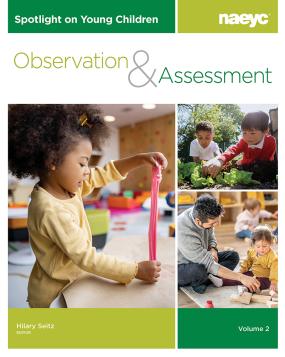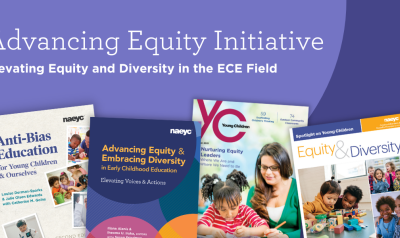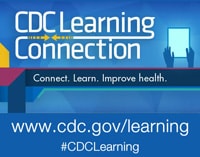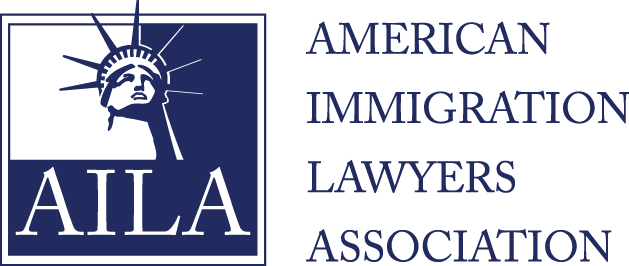ChildCare Education Institute: The Industry Leader for Online Professional Development
Your college degree is that much closer.
Thanks to ChildCare Education Institute and StraighterLine’s partnership, you can earn college credit for PD offerings and take affordable, online college courses to accelerate your path to an early childhood education degree.

Graduated over 55,000 early childhood education professionals from CDA and other child care certificate programs. CDA Certification Other Child Care Certifications
Why Choose CCEI’s CDA Program over Others?
- Council for Professional Recognition Partner
- Access to Education Coach support
- Self-paced – you have a year to complete but can do faster if your schedule permits
- Training meets The Council for Professional Recognition’s content area requirements
- Prepares students for The Council’s credentialing assessment process
- IACET CEUs awarded for completed training
Play video to find out how our CDA Certification Courses can help you.
Childcare education institute: student satisfaction scores.
Rated CCEI excellent or good
Rated CCEI’s online learning system as excellent or good
Would recommend CCEI to others
Were satisfied with their studies
How Is Online Learning at CCEI Different?
Taking courses through CCEI’s distance education is a great way to accomplish professional development objectives, while maintaining a full or a part-time job and a busy family schedule. CCEI online distance learning offers the convenience of taking coursework from work, home, a library or anywhere internet access is available. Our accredited child care courses are a great option for students with busy schedules that may prevent them from attending more traditional scheduled in-person training. CCEI early childhood classes online are self-paced, allowing students to take them at any time. Many of CCEI’s students take child care training courses in the evenings, after their households settle in and on weekends. These students also save on gas and babysitting costs that often come with commuting to a traditional school environment. Learn more about CCEI’s accredited child care courses today!
Watch how CCEI has helped child care professionals in their professional development journey just like you with our convenient early childhood education classes online.
Ccei testimonials.
Jody M. Greenwood Village, CO
Queen J. Atlanta, GA
Michael G. Houston, TX
Not Sure Online Training is Right for You? Take a Trial Course on Us Today!
psst…. you get to test drive our platform for free!
ChildCare Education Institute (CCEI) is the industry leader for online professional development .
Professional Development Courses
Certificate Programs
Staff Training
Head Start Training
Director Training
Custom Course Hosting
Trial Course
Trending Topics
Terms of Use | Privacy Policy | Site Map | Code of Conduct | Student Handbook English | Student Handbook Spanish © 2024 ChildCare Education Institute 1155 Perimeter Center West, Atlanta, GA 30338 Phone: 1.800.499.9907
Bachelor of Science in Early Childhood Education (Birth - Age 5)

Request More Information from an Enrollment Advisor
Step 1 of 2.
- Program of Interest * Choose a Program AAS Health Information Systems AAS Health Information Systems - Cancer Registry Application Software Support Specialist Certificate Associate of Applied Business in Accounting Technology Associate of Applied Business in Business Applications Technology Associate of Applied Business in Business Management Technology Associate of Applied Business in Financial Management Technology Associate of Applied Business in Healthcare Management Technology Associate of Applied Business in Information Technology Associate of Applied Business in Law & Paralegal Studies Associate of Applied Business in Marketing Management Technology Associate of Applied Business in Supply Chain Management Technology Associate of Applied Science in Early Childhood Care & Education Associate of Arts in Business Administration (Pre) Associate of Arts in Communication Associate of Individualized Study in Interdisciplinary Studies Associate of Science in Public Health Autism Spectrum Disorders Graduate Certificate Bachelor of Arts in Communication Bachelor of Arts in Organizational Leadership Bachelor of Arts in Professional Studies Bachelor of Business Administration - Finance Bachelor of Business Administration - Marketing Bachelor of Health Information Management Bachelor of Science in Criminal Justice Bachelor of Science in Early Childhood Education Bachelor of Science in Health Sciences Bachelor of Science in Health Sciences - Pre-Occupational Therapy Bachelor of Science in Law & Paralegal Studies Bachelor of Science in Medical Laboratory Science Bachelor of Science in Public Health Bachelor of Science in Respiratory Therapy Bachelor of Science in Substance Abuse Counseling Bachelor of Social Work Bachelor of Technical and Applied Studies in Applied Administration Bachelor of Technical and Applied Studies in Applied Administration: Healthcare Leadership Business Foundations Graduate Certificate Cancer Registry Management Certificate Blended Online Learning and Teaching (BOLT) Certificate in Substance Abuse Counseling Clinical Trials Design and Research Graduate Certificate Corporate Taxation Graduate Certificate Cosmetic Science Graduate Certificate Data Analytics Graduate Certificate Data-Driven Cybersecurity Certificate Digital Marketing Graduate Certificate Executive Master of Health Administration - EMHA Gifted Education Endorsement Global Regulatory Affairs in Drug Development Graduate Certificate Graduate Certificate in Analysis of Criminal Behavior Graduate Certificate in Correctional Rehabilitation Graduate Certificate in Crime Analysis and Prevention Health Care Administration Graduate Certificate Health Care Finance Graduate Certificate Health Care Operations Graduate Certificate Health Care Policy & Regulation Graduate Certificate Hygienic Manufacturing of Cosmetic Products Graduate Certificate Individual Taxation Graduate Certificate Information Technology Certificate Information Technology Graduate Certificate Investment Management Graduate Certificate MEd Curriculum and Instruction MEd Educational Leadership MEd Instructional Design and Technology MEd Literacy and Second Language Studies MEd Special Education MEng in Electrical Engineering MEng in Mechanical Engineering MEng in Robotics & Intelligent Autonomous Systems MS Pharm Sci: Drug Development MS Pharm Sci: Health Outcomes & Pharmacoeconomics MS Pharm Sci: Pharmacogenomics and Personalized Healthcare MSN Adult-Gerontology Primary Care Nurse Practitioner MSN Family Nurse Practitioner MSN Nurse-Midwifery MSN Nursing Education MSN Women's Health Nurse Practitioner Marketing Graduate Certificate Master of Arts in Teaching—Special Education Master of Business Administration - MBA Master of Education in Foundations in Behavior Analysis Master of Health Informatics - MHI Master of Legal Studies Master of Science in Business Analytics Master of Science in Community Health & Prevention Science Master of Science in Cosmetic Science Master of Science in Criminal Justice Master of Science in Finance Master of Science in Geographic Information Systems Master of Science in Health and Wellness Management Master of Science in Information Systems Master of Science in Information Technology Master of Science in Marketing Master of Science in Medical Laboratory Science Leadership Master of Science in Pharmacy Leadership Master of Science in Respiratory Therapy Master of Science in Sport Administration Master of Science in Taxation Medical Coder Certificate Pharmacogenomics and Personalized Healthcare Graduate Certificate Pharmacy Leadership Graduate Certificate Physician Practice Management Certificate Post-Associate Certificate in Law and Paralegal Studies Post-Baccalaureate Certificate in Law & Paralegal Studies Post-Master's Family Nurse Practitioner Post-Master's Psychiatric-Mental Health Nurse Practitioner PreK-12 Reading Instruction Endorsement Principal Licensure Endorsement RN to BSN Online Revenue Cycle Management Certificate Special Education Leadership Graduate Certificate Teaching English to Speakers of Other Languages Endorsement Transition to Work Endorsement Undecided
- Yes (*includes in-progress degree)
- Desired Start Date * Please Select an Option Summer 2024 Fall 2024 Spring 2025
- Name * First Name Last Name
- Country * Afghanistan Albania Algeria American Samoa Andorra Angola Anguilla Antarctica Antigua and Barbuda Argentina Armenia Aruba Australia Austria Azerbaijan Bahamas Bahrain Bangladesh Barbados Belarus Belgium Belize Benin Bermuda Bhutan Bolivia Bonaire, Sint Eustatius and Saba Bosnia and Herzegovina Botswana Bouvet Island Brazil British Indian Ocean Territory Brunei Darussalam Bulgaria Burkina Faso Burundi Cabo Verde Cambodia Cameroon Canada Cayman Islands Central African Republic Chad Chile China Christmas Island Cocos Islands Colombia Comoros Congo Congo, Democratic Republic of the Cook Islands Costa Rica Croatia Cuba Curaçao Cyprus Czechia Côte d'Ivoire Denmark Djibouti Dominica Dominican Republic Ecuador Egypt El Salvador Equatorial Guinea Eritrea Estonia Eswatini Ethiopia Falkland Islands Faroe Islands Fiji Finland France French Guiana French Polynesia French Southern Territories Gabon Gambia Georgia Germany Ghana Gibraltar Greece Greenland Grenada Guadeloupe Guam Guatemala Guernsey Guinea Guinea-Bissau Guyana Haiti Heard Island and McDonald Islands Holy See Honduras Hong Kong Hungary Iceland India Indonesia Iran Iraq Ireland Isle of Man Israel Italy Jamaica Japan Jersey Jordan Kazakhstan Kenya Kiribati Korea, Democratic People's Republic of Korea, Republic of Kuwait Kyrgyzstan Lao People's Democratic Republic Latvia Lebanon Lesotho Liberia Libya Liechtenstein Lithuania Luxembourg Macao Madagascar Malawi Malaysia Maldives Mali Malta Marshall Islands Martinique Mauritania Mauritius Mayotte Mexico Micronesia Moldova Monaco Mongolia Montenegro Montserrat Morocco Mozambique Myanmar Namibia Nauru Nepal Netherlands New Caledonia New Zealand Nicaragua Niger Nigeria Niue Norfolk Island North Macedonia Northern Mariana Islands Norway Oman Pakistan Palau Palestine, State of Panama Papua New Guinea Paraguay Peru Philippines Pitcairn Poland Portugal Puerto Rico Qatar Romania Russian Federation Rwanda Réunion Saint Barthélemy Saint Helena, Ascension and Tristan da Cunha Saint Kitts and Nevis Saint Lucia Saint Martin Saint Pierre and Miquelon Saint Vincent and the Grenadines Samoa San Marino Sao Tome and Principe Saudi Arabia Senegal Serbia Seychelles Sierra Leone Singapore Sint Maarten Slovakia Slovenia Solomon Islands Somalia South Africa South Georgia and the South Sandwich Islands South Sudan Spain Sri Lanka Sudan Suriname Svalbard and Jan Mayen Sweden Switzerland Syria Arab Republic Taiwan Tajikistan Tanzania, the United Republic of Thailand Timor-Leste Togo Tokelau Tonga Trinidad and Tobago Tunisia Turkmenistan Turks and Caicos Islands Tuvalu Türkiye US Minor Outlying Islands Uganda Ukraine United Arab Emirates United Kingdom United States Uruguay Uzbekistan Vanuatu Venezuela Viet Nam Virgin Islands, British Virgin Islands, U.S. Wallis and Futuna Western Sahara Yemen Zambia Zimbabwe Åland Islands Country
- State * State Alabama Alaska American Samoa Arizona Arkansas California Colorado Connecticut Delaware District of Columbia Florida Georgia Guam Hawaii Idaho Illinois Indiana Iowa Kansas Kentucky Louisiana Maine Maryland Massachusetts Michigan Minnesota Mississippi Missouri Montana Nebraska Nevada New Hampshire New Jersey New Mexico New York North Carolina North Dakota Northern Mariana Islands Ohio Oklahoma Oregon Pennsylvania Puerto Rico Rhode Island South Carolina South Dakota Tennessee Texas Utah U.S. Virgin Islands Vermont Virginia Washington West Virginia Wisconsin Wyoming Armed Forces Americas Armed Forces Europe Armed Forces Pacific ZIP
- Hidden * Region Postal Code
- Military Affiliated Select Not Affiliated Spouse Dependent Veteran Air Force Army Coast Guard Marines Navy Reserve/National Guard
- Freely given consent from contact * By submitting this form I accept the privacy policy and understand that University of Cincinnati may contact me via telephone, email, and/or text messages about educational programs using an automated technology. *
- Phone This field is for validation purposes and should be left unchanged.
- Comments This field is for validation purposes and should be left unchanged.
- Program Overview
- Academic Calendar
- Admission Requirements
- Testimonials
- Transfer & Articulation
SUMMER 2024 APPLICATION FEE WAIVED
View the information session recording.
UC Online’s Bachelor in Early Childhood Education (ECE) offers a program to round out and enhance educators’ Birth – Age 5 educational experience. This program is designed to build on associate degree competencies to strengthen professionals’ ability to design and implement developmentally appropriate learning environments for children Birth–Age 5.
Whether you are in a preschool, Head Start program, child-care center, family childcare environment, or just interested in getting started in the field, our online program provides the flexibility and accessibility you need. Our courses give you information and strategies that you can learn today and apply in the classroom tomorrow! This degree does not lead to Pre-Kindergarten – Grade 5 licensure.

Early Childhood Education Program Highlights:
- Start-to-Graduation Support: Every student enrolled online is assigned a dedicated Academic Advisor and also a Student Success Coordinator providing one-on-one support. They are your on-campus partners who can help you manage your time and ensure you’re meeting degree requirements to get you to graduation.
- T.E.A.C.H. Early Childhood® OHIO Scholarship: Current Ohio early childhood professionals may be eligible to receive financial assistance for the cost of tuition, books, and related education expenses. Visit OCCRRA to apply.
- 100% Online: All coursework is completed online – no campus visits are required!
- Flexible Scheduling: Offering part-time and full-time options, our online program is designed with busy, working professionals in mind.
- Three Start Dates per Year: With courses offered year-round, students are offered the convenience of beginning their degree in Fall, Spring, or Summer.
- Accredited: The University of Cincinnati and all of its regional campuses are accredited by the Higher Learning Commission . Additionally, UC’s College of Education, Criminal Justice & Human Rights (CECH) is accredited by the Council for the Accreditation of Educator Preparation (CAEP).
- Nationally Ranked: UC Online’s BSEd in Early Childhood Care & Education is currently ranked as the 2nd Best Online Bachelor’s in Early Childhood Education by TheBestSchools.org .
Our Guiding Principles:
- To provide accessible education to early childhood teachers.
- To support teachers, families, staff, administrators, and children they serve.
- To help programs meet state and federal mandates and quality initiatives.
- To help teachers meet educational goals.
- To strengthen workplace learning.
- To create technology-proficient teachers.

Business Scholarship Program
UC Online has partnered with hundreds of companies to offer tuition scholarships to employees, spouses, and dependents.
- Academic Calendar Start dates, deadlines, and more
- Admission Requirements Prerequisites and requirements
- Careers Occupations available after graduation
- Curriculum Course offerings and samples
- Faculty Meet the department
- Testimonials Click here for more information
- Transfer & Articulation Click here for more information
- Tuition Tuition calculator and cost breakdown

Yes. You will need to work with a program advisor to understand what credits will apply and meet the minimum requirement for credit hours completed at the University of Cincinnati.
Programs can be completed full-time or part-time. Many programs are set up to be part-time, with most containing fewer than 10 credit hours in any given semester. We know you have a lot going on, so want to make sure that school can fit into your schedule. Note: There are some exceptions.
Tuition is calculated on a per-credit basis. Refer to the Tuition and Fees Chart for more details.
Related Articles
Additional resources to support you from start to finish.

- Notice of Non-Discrimination
- Privacy Policy
- Clery and HEOA Notice
- eAccessibility Concerns
© 2024 University of Cincinnati Online Copyright Information
- NAEYC Login
- Member Profile
- Hello Community
- Accreditation Portal
- Online Learning
- Online Store
Popular Searches: DAP ; Coping with COVID-19 ; E-books ; Anti-Bias Education ; Online Store
National Association for the Education of Young Children

Register Now for the 2024 NAEYC Professional Learning Institute in New Orleans, LA from June 2-5!

Read the Spring 2024 issue of Young Children, which offers in-depth explanations and powerful examples of social studies teaching and learning in action.

Read the Spring 2024 issue of Teaching Young Children, which explores ways to support children's individuality in the classroom!

Spotlight on Young Children: Observation and Assessment, Volume 2

Explore NAEYC's Online Learning opportunities and invest in your professional development through self-paced modules. Certificates are provided!

Introducing our Advancing Equity Initiative page, with Equity resources for every teacher!
Together we, deepen our knowledge.
Gain inspiration for your practice as an early childhood educator with our high-quality, research-based books and resources.

Meet and Grow
Connect with your peers at one of our events and get the latest research, best practices, and tools.

Ensure Quality for Children and Educators
Meet national standards of quality! Equip your program with tools that provide the best learning experiences for young children, and provide student educators with the highest quality professional preparation.

Take Action

Become the active, engaged, and informed early learning advocate that you want to be!

Find your professional community through Interest Forums and online communities.

Support our mission and reach the NAEYC audience through your advertisement, conference exhibit booth, or sponsorship.
NAEYC Books
The best resources to support effective teaching and learning for children. Visit the Online Store for great books, purchasing information, and to preview content.
Best Early Childhood Education Degrees Online

Liz Simmons
Contributing Writer
Learn about our editorial process .
Updated March 27, 2024
Daniella Ramirez
Contributing Editor
TheBestSchools.org is an advertising-supported site. Featured or trusted partner programs and all school search, finder, or match results are for schools that compensate us. This compensation does not influence our school rankings, resource guides, or other editorially-independent information published on this site.
Are you ready to discover your college program?
An online early childhood education degree prepares enrollees to work with young children. Find out how to earn this credential and choose the right program.
Online Bachelor's in Early Childhood Education Overview
People who love working with young children typically pursue early childhood education degrees to qualify for work as preschool teachers, preschool or childcare directors, and assistant teachers. Common workplaces include daycare centers, preschools, elementary schools, and early childhood centers.
Early childhood education programs develop skills in classroom management, curriculum development, and child advocacy. Students can also gain leadership, communication, and organizational skills. Some online early childhood education programs include teacher licensure, while others do not.
A typical curriculum in early childhood education covers topics like child development, diversity in education, individualized learning, and support for dual language learners. Students may also learn about special education, classroom organization, and emerging literacy assessment methods.
The Best Online Bachelor's in Early Childhood Education Programs
The school and/or program descriptions below were drafted using natural language generation technology and have been edited for clarity and accuracy. The data is primarily sourced from government databases such as IPEDS — see sources section for more details.
We use datasets from sources like the National Center for Education Statistics to inform the data for these schools. TheBestSchools.org is an advertising-supported site. Featured or trusted partner programs and all school search, finder, or match results are for schools that compensate us. This compensation does not influence our school rankings, resource guides, or other editorially-independent information published on this site. from our partners appear among these rankings and are indicated as such. All data is current as of the date this article was published. Program-specific information may vary.
#1 Best Early Childhood Education Degrees Online
The University of Washington
- Seattle, WA
- Online + Campus
The University of Washington, a leader in hybrid education, offers 248 bachelor's programs. One of two bachelor's degrees available fully online, the bachelor of arts in early care and education equips students with industry-relevant skills and knowledge in a flexible format. Through foundational and advanced coursework, as well as experiential learning opportunities, the program prepares alumni for their postgraduate path in the workforce or for further studies.
Learners can access career services, academic advising, and other success-geared resources while enrolled in the program. Prospective applicants should meet with a financial aid counselor to determine their eligibility for scholarships, grants, and other forms of financial aid. The college reports that enrollees are awarded $17,004 in financial aid, on average.
The University of Washington at a Glance:
Type of School: Public
Admission Rate: 56%
Student-Faculty Ratio: 20-to-1
Undergrad Tuition In State: $10,629
Undergrad Tuition Out of State: $37,998
Average Alumni Earnings After Six Years: $50,300
#2 Best Early Childhood Education Degrees Online
Western Governors University
- Salt Lake City, UT
Western Governors University is a leader in hybrid education, supporting 30 online bachelor's degrees for distance learners. The school's online elementary education degree provides undergraduates with industry-relevant knowledge and skillsets needed to succeed in early childhood education. The knowledge and skills gained from these studies can benefit graduates in their careers in early education or prepare them for coursework at a postbaccalaureate level.
Early childhood education students can access institutional support services throughout the duration of the program. Scholarships, fellowships, and federal financial aid can help defray the costs of the bachelor's degree.
Western Governors University at a Glance:
Type of School: Private
Student-Faculty Ratio: 42-to-1
Undergrad Tuition In State: $6,380
Undergrad Tuition Out of State: $6,380
Average Alumni Earnings After Six Years: $48,100
#3 Best Early Childhood Education Degrees Online
Florida International University
Florida International University, located in Miami, provides 81 bachelor's degree options in dual modalities. Delivered in a flexible platform, the online bachelor of science degree in early childhood education introduces participants to the foundational skills and knowledge necessary to pursue a career in early childhood education. While learning theories and practices of childhood education, students build additional skills, such as communication and critical thinking, through general classes. Graduates can apply their knowledge and skillset to further educational studies in early childhood education or to their career.
The college supports attendees through institutional resources, including career services and academic advising. To help offset the cost of earning a degree, the college provides numerous funding opportunities to eligible learners, including scholarships and fellowships. The average enrollee receives $9,917 in financial aid, with 94% of all degree-seekers benefiting from aid.
Florida International University at a Glance:
Admission Rate: 58%
Student-Faculty Ratio: 25-to-1
Undergrad Tuition In State: $4,721
Undergrad Tuition Out of State: $16,529
Average Alumni Earnings After Six Years: $41,500
#4 Best Early Childhood Education Degrees Online
Central Methodist University
- Fayette, MO
Central Methodist University, based in Fayette, Missouri, offers 27 bachelor's programs in both online and in-person formats. For individuals seeking a career in early childhood education, the BSEd program in early childhood education is a wise choice. After obtaining their degree, graduates can apply their knowledge to a teaching career or further studies.
Early childhood education degree-seekers can access a variety of institutional support services, such as academic advisement, throughout the duration of the program. Students can also meet with the financial aid office to explore funding opportunities and determine their eligibility.
Central Methodist University at a Glance:
Admission Rate: 100%
Student-Faculty Ratio: 16-to-1
Undergrad Tuition In State: $5,950
Undergrad Tuition Out of State: $5,950
Average Alumni Earnings After Six Years: $35,000
#5 Best Early Childhood Education Degrees Online
Grand Canyon University
- Phoenix, AZ
Grand Canyon University supports 67 bachelor's degrees, 39 of which are available remotely. A flexible, online program, the school's BS in early childhood education stands out as a competitive option for students looking to succeed in the early childhood education field. After the program, graduates can pursue a teaching career or continue their education with an advanced degree.
The college provides comprehensive support for new enrollees, which includes financial aid advising. Learners can meet with a financial aid counselor to discuss funding opportunities and available scholarships, as well as determine their eligibility.
Grand Canyon University at a Glance:
Admission Rate: 81%
Student-Faculty Ratio: 21-to-1
Undergrad Tuition In State: $16,424
Undergrad Tuition Out of State: $16,424
Average Alumni Earnings After Six Years: $36,000
#6 Best Early Childhood Education Degrees Online
Mayville State University
- Mayville, ND
A leader in hybrid education, Mayville State University supports in-person and online study across 31 bachelor's degree options. Students interested in a career in early childhood education can obtain an online BSEd degree remotely. The flexible program equips graduates with industry-relevant knowledge, which they can apply to further their studies in early childhood education or begin their careers.
The college provides comprehensive support for new enrollees, including financial aid advising. Prospective applicants may be eligible for funding options, such as scholarships, fellowships, and grants. Of the college's total undergraduate cohort, 97% receive some form of aid.
Mayville State University at a Glance:
Admission Rate: 53%
Student-Faculty Ratio: 13-to-1
Undergrad Tuition In State: $6,025
Undergrad Tuition Out of State: $9,038
Average Alumni Earnings After Six Years: $35,700
#7 Best Early Childhood Education Degrees Online
Aspen University
From its main campus in Denver, Colorado, Aspen University offers seven bachelor's programs in both face-to-face and online formats. The school's bachelor of science degree in early childhood studies is a robust program that equips participants with industry-relevant knowledge required for a career in education. The early childhood education program prepares students for teaching careers and qualifies graduates to pursue advanced degrees.
Early childhood education degree-seekers benefit from institutional support services throughout their studies. Learners seeking to defray the costs of their degree can meet with a financial aid counselor to discuss funding opportunities and determine eligibility.
Aspen University at a Glance:
Type of School: Private
Student-Faculty Ratio: 8-to-1
Undergrad Tuition In State: $4,545
Undergrad Tuition Out of State: $4,545
#8 Best Early Childhood Education Degrees Online
Florida State College at Jacksonville
- Jacksonville, FL
Florida State College at Jacksonville offers 13 bachelor's degrees across in-person and online learning modalities. Individuals seeking the skills and knowledge needed to succeed in the early childhood education field can earn a BS in early childhood education. Participants can apply their learnings to a teaching career or towards a graduate degree.
Students seeking career, academic, and financial guidance can benefit from career services, academic advising, and other institutional resources while enrolled. Prospective applicants may be eligible for funding options, such as scholarships, fellowships, and grants. The average degree-seeker receives a financial aid award package of $5,695.
Florida State College at Jacksonville at a Glance:
Student-Faculty Ratio: 23-to-1
Undergrad Tuition In State: $2,095
Undergrad Tuition Out of State: $7,947
Average Alumni Earnings After Six Years: $30,800
#9 Best Early Childhood Education Degrees Online
National University
- San Diego, CA
National University, a private college located in San Diego, California, supports both in-person and online learning across 52 bachelor's programs. The school offers a bachelor of arts degree in early childhood education, which through a robust education, equips participants with the skills needed to succeed in an early childhood education career. Graduates can also apply their knowledge to further their studies through a master's degree.
Enrollees benefit from a range of resources throughout their studies, including career services and academic advising. Prospective students should meet with a financial aid counselor to determine their eligibility for scholarships, grants, and other forms of financial aid.
National University at a Glance:
Admission Rate: 89%
Undergrad Tuition In State: $13,320
Undergrad Tuition Out of State: $13,320
Average Alumni Earnings After Six Years: $51,900
#10 Best Early Childhood Education Degrees Online
Walden University
- Minneapolis, MN
With its main campus in Minneapolis, Minnesota, Walden University facilitates in-person and online learning across 20 bachelor's degree options. The school's BS in early childhood studies equips students with industry-relevant skills and knowledge through foundational and advanced coursework and experiential learning opportunities. The knowledge and skills gained from these studies can benefit graduates in a teaching career or in further educational pursuits.
Degree-seekers benefit from a range of resources throughout their studies, including career services and academic advising. Learners can meet with the financial aid office to explore funding opportunities and determine eligibility.
Walden University at a Glance:
Student-Faculty Ratio: 19-to-1
Undergrad Tuition In State: $10,139
Undergrad Tuition Out of State: $10,139
Average Alumni Earnings After Six Years: $46,100
#11 Best Early Childhood Education Degrees Online
University of Phoenix
University of Phoenix leads in hybrid education, supporting 39 online bachelor's programs. The bachelor of science in education in early childhood education is one of many robust degree options, preparing students with industry-relevant knowledge. Graduates can apply their knowledge and skills to an early childhood education-specific career or to furthering their studies in the subject.
The college connects degree-seekers with institutional resources throughout their studies. Learners can meet with the financial aid office to explore funding opportunities and determine their eligibility.
University of Phoenix at a Glance:
Student-Faculty Ratio: 77-to-1
Undergrad Tuition In State: $9,552
Undergrad Tuition Out of State: $9,552
Average Alumni Earnings After Six Years: $34,200
#12 Best Early Childhood Education Degrees Online
Charter Oak State College
- New Britain, CT
Individuals seeking flexible study can choose from in-person or online bachelor's degree options at Charter Oak State College. For those interested in the early childhood education field, the school's BS in early childhood education is a wise program choice. Students can apply their learnings to a teaching position, administration role, or graduate degree.
Learners benefit from a range of resources throughout their studies, including career services and academic advising. Scholarships, fellowships, and federal financial aid can help defray the costs of an undergraduate degree. The college reports that enrollees are awarded $4,497 in financial aid, on average.
Charter Oak State College at a Glance:
Undergrad Tuition In State: $7,656
Undergrad Tuition Out of State: $10,056
Average Alumni Earnings After Six Years: $48,200
#13 Best Early Childhood Education Degrees Online
Northwestern College
- Orange City, IA
From its main campus in Orange City, Iowa, Northwestern College provides in-person and remote learning opportunities across 49 bachelor's degrees. The school's bachelor of arts in early childhood is an ideal choice for students seeking to advance in an early childhood education career. The nonlicensure program can prepare graduates for a variety of career roles or to complete further studies during an advanced degree.
Degree-seekers can access career services, academic advising, and other success-geared resources while enrolled in the program. Prospective applicants can connect with financial aid counselors to explore funding opportunities, determine eligibility, and apply for student loans.
Northwestern College at a Glance:
Admission Rate: 74%
Student-Faculty Ratio: 11-to-1
Undergrad Tuition In State: $32,700
Undergrad Tuition Out of State: $32,700
Average Alumni Earnings After Six Years: $36,100
#14 Best Early Childhood Education Degrees Online
Liberty University
- Lynchburg, VA
Located in Lynchburg, Virginia, Liberty University supports both in-person and remote study opportunities across 93 bachelor's degree options. The online nonlicensure BS in early childhood education degree equips students with industry-relevant skills and knowledge through foundational and advanced coursework. Enrollees also participate in experiential learning opportunities. After program completion, graduates can enter the workforce or pursue further education, such as enrolling in a master's program.
Learners can access career services, academic advising, and other institutional resources throughout their studies. Before enrolling, prospective applicants can meet with financial aid counselors to determine eligibility for scholarships, grants, and other financial aid.
Liberty University at a Glance:
Admission Rate: 50%
Student-Faculty Ratio: 17-to-1
Undergrad Tuition In State: $14,791
Undergrad Tuition Out of State: $14,791
Average Alumni Earnings After Six Years: $35,800
#15 Best Early Childhood Education Degrees Online
Colorado Christian University
- Lakewood, CO
A leader in hybrid education, Colorado Christian University supports in-person and online study across 46 bachelor's degrees. The school's bachelor of arts in early childhood education is an ideal choice for individuals seeking to advance in an early childhood education career. Available in both licensure and nonlicensure tracks, the early childhood education program also prepares students to complete graduate studies.
Through career services, academic advising, and other resources, enrollees can receive guidance throughout their studies. The financial aid office can assist degree-seekers in connecting with funding opportunities and determining their eligibility.
Colorado Christian University at a Glance:
Student-Faculty Ratio: 15-to-1
Undergrad Tuition In State: $24,160
Undergrad Tuition Out of State: $24,160
Average Alumni Earnings After Six Years: $37,600
#16 Best Early Childhood Education Degrees Online
Northwest Florida State College
- Niceville, FL
A leader in hybrid education, Northwest Florida State College supports seven bachelor's programs, three of which are available online. For students seeking a career in the early childhood education field through flexible enrollment, the online bachelor BS in early childhood education program is a wise choice. After graduating, participants can pursue careers or postgraduate studies relevant to the early childhood education field.
Early childhood education degree-seekers can access institutional support services throughout the duration of the program. Prospective applicants can meet with financial aid counselors to determine their eligibility for scholarships, grants, and other financial aid. The institution reports that 79% of all learners receive aid, with an average financial aid package being $5,768.
Northwest Florida State College at a Glance:
Undergrad Tuition In State: $2,496
Average Alumni Earnings After Six Years: $27,800
#17 Best Early Childhood Education Degrees Online
The University of North Carolina at Greensboro
- Greensboro, NC
The University of North Carolina at Greensboro offers a total of 66 bachelor's programs in both face-to-face and online formats. The school's BS in early care and education degree is offered through an virtual platform and stands out as a competitive option for students looking to succeed in the field. Alumni of the early childhood education program can also pivot to a master's degree after their undergraduate studies.
Early childhood education degree-seekers benefit from institutional support throughout their studies. The college provides numerous funding opportunities to eligible enrollees, including scholarships and fellowships. Incoming learners receives an average of $9,314 in financial aid awards.
The University of North Carolina at Greensboro at a Glance:
Admission Rate: 88%
Undergrad Tuition In State: $4,422
Undergrad Tuition Out of State: $19,581
Average Alumni Earnings After Six Years: $33,100
#18 Best Early Childhood Education Degrees Online
Indiana Wesleyan University
Individuals looking for flexible study in dual modalities can choose from one of Indiana Wesleyan University's 19 bachelor's degree options. Students seeking the skills and knowledge needed to succeed in the early childhood education field can enroll in the school's online BS in early childhood education program, which is a nonlicensure track. After the program, participants can pursue an early childhood education-specific career or graduate studies.
The college provides comprehensive support for new enrollees, including financial aid advising. To help offset the cost of earning an education, prospective degree-seekers may be eligible for funding options, such as scholarships, fellowships, and grants.
Indiana Wesleyan University at a Glance:
Undergrad Tuition In State: $8,871
Undergrad Tuition Out of State: $8,871
#19 Best Early Childhood Education Degrees Online
Eastern Oregon University
- La Grande, OR
Located in La Grande, Eastern Oregon University supports both in-person and remote study opportunities across 31 bachelor's programs. Individuals seeking flexible study relevant to the early childhood education field can benefit from the one of school's bachelor's degrees in early childhood education. Along with preparing participants for careers in applicable fields, the early childhood education program also prepares alumni for further educational pursuits, such as graduate studies.
Career services and academic advising are just two of the numerous institutional resources centering on student success. Learners seeking to defray the costs of their degree can meet with a financial aid counselor to discuss funding opportunities and determine their eligibility. Typically, 96% of all enrollees receive some form of aid, with the average financial aid package being $6,961.
Eastern Oregon University at a Glance:
Admission Rate: 94%
Undergrad Tuition In State: $7,830
Undergrad Tuition Out of State: $20,520
#20 Best Early Childhood Education Degrees Online
The University of Montana Western
The University of Montana Western leads in hybrid education opportunities, supporting 33 bachelor's degrees, one of which is available online. The school offers an early childhood education program, through which participants earn a bachelor of science degree. The robust education equips graduates with the skills needed to succeed in an early childhood education career. After the program, students can join the workforce or pursue graduate studies.
Enrollees benefit from a range of resources throughout their studies, including career services and academic advising. To help defray the cost of earning a degree, the college provides numerous funding opportunities to eligible learners, including scholarships and fellowships. Of the college's total undergraduate cohort, 91% receive some form of aid.
The University of Montana Western at a Glance:
Admission Rate: 52%
Student-Faculty Ratio: 14-to-1
Undergrad Tuition In State: $4,523
Undergrad Tuition Out of State: $15,913
Average Alumni Earnings After Six Years: $29,300
Online Bachelor's in Early Childhood Education Programs Ranking Guidelines
We selected the below accredited online early childhood education programs based on quality, types of courses offered, faculty, rankings, awards, and reputation, including the schools reputation for providing quality online degrees.
Our Methodology
Here at TheBestSchools.org, we take the trust and welfare of our readers very seriously. When making our school and program rankings, our top priority is ensuring that our readers get accurate, unbiased information that can help them make informed decisions about online education. That's why we've developed a rigorous ranking methodology that keeps the needs of our readers front and center.
Our proprietary, multi-criteria ranking algorithm analyzes key data indicators — as collected by the federal government — for each school or program. What data we use depends on the focus of each specific ranking, but in all cases, our ranking methodology is impartial: Schools cannot buy better rankings at TBS.
While specific criteria under consideration can vary by ranking, there are a few data points that we value most highly. They are affordability, academic quality, and online enrollment. Below, we break down our algorithm to help you understand what you're getting when you use one of our rankings.
- Affordability
- Online Enrollment
Data Sources
The data used in TBS rankings comes primarily from the federal government, and much of it is provided by the schools themselves. We aggregate and analyze this data to build our rankings.
The Integrated Postsecondary Education Data System (IPEDS) is our primary source. Its data comes from annual surveys conducted by the U.S. Department of Education's National Center for Education Statistics (NCES). Every college, university, or technical school with access to federal financial aid must participate in these surveys, which include questions about enrollment, graduation rates, finances, and faculty qualifications. This is publicly available data, which you can access yourself through the College Navigator .
Additionally, because we value a personal touch and the professional experience of our staff and Academic Advisory Board, we vet all results and adjust rankings as necessary based on our collected knowledge of schools and degree programs. Depending on the ranking, we may obtain additional input from AcademicInfluence.com , subject matter experts, prior TBS ranking lists, or other sources we deem relevant to a particular ranking.
Breakdown of Our Rankings Methodology
About our ranking factors.
Here at TBS, we value what you value: quality education, affordability, and the accessibility of online education. These factors guide all of our program rankings.
Each of these factors are further broken down into weighted subfactors. For example, retention rates are weighted more heavily than availability of program options because they are a better indicator of student success.
We chose the following factors for our rankings because of their influence on learning experiences and graduate outcomes. However, students should always balance our rankings against their personal priorities. For instance, a learner who needs a fully online program may prioritize online flexibility more than our rankings do. Our rankings are designed to help you make a decision — not to make a decision for you.
- Collapse All
Academics - 75%
Affordability - 15%, online enrollment - 10%.
In all our school rankings and recommendations, we work for objectivity and balance. We carefully research and compile each ranking list, and as stated in our advertising disclosure, we do NOT permit financial incentives to influence rankings. Our articles never promote or disregard a school for financial gain.
If you have questions about our ranking methodology, please feel free to connect with our staff through contact page .
We thank you for your readership and trust.
Featured Online Education Degrees
Learn about start dates, transferring credits, availability of financial aid, and more by contacting the universities below.
The Advantages of Studying Early Childhood Education Online
While graduates with associate degrees can pursue early childhood education employment, a bachelor's-level education can provide additional benefits. Bachelor's degree-holders can work as lead preschool teachers, preschool directors, and elementary teachers for K-3 students. Individuals with associate degrees can only work in lower-level education jobs, like assistant preschool teachers.
Earning a master's in early childhood education can deliver even more opportunities, such as roles in advanced fields like curriculum development or principalship. Graduates can also qualify for college professor employment to teach early childhood education.
For most early childhood education careers, a bachelor's degree will suffice. If you're undecided about pursuing a higher degree, consider the potential salaries of careers in early childhood education.
Featured Early Childhood Education Programs
Which online early education degree program is right for me.
Take your time when exploring your options for earning an online degree in early childhood education. The first school you find might not be the right choice for you. Many institutions offer online programs, so it can be beneficial to remain discerning and selective.
Schools may charge discounted tuition to in-state learners. For example, Texas residents can often save money by enrolling in Texas-based schools . Some online programs offer flat-rate tuition to all enrollees, regardless of location.
- Program Cost: As you research tuition and other fees, consider that private institutions typically cost more than public schools. However, you should be wary of programs that are significantly cheaper than most, as they might not be accredited. Online school rankings can help you evaluate cost and quality.
- Transfer Policies: Always check a school's transfer policies. While you might feel set on a certain school or program, keeping your options open can be beneficial. Most accredited schools have transferable credits, but policies differ among institutions.
- School Size and Type: Before enrolling in an early childhood education degree online program, consider each school's public vs. private status. If you prefer closer attention from professors, a private institution may offer a better option. If you don't mind larger class sizes, you can save money by attending a state school.
- Program Length: If you want to focus most of your attention on completing your degree quickly, enroll in a full-time or accelerated program. If you have a busy schedule and prefer a slower pace, enroll in a part-time program. Typically, full-time students complete bachelor's degrees in four years, while part-time students take 6-8 years.
- On-Campus Requirements: Some courses require supervised tests or in-person advisor meetings. If you want to study from the comfort of your home or live in a different part of the country from your university, pay close attention to on-campus requirements.
Early Childhood Education Careers and Outlook
Early childhood education is a versatile degree and can open the door to various careers. Some early childhood education degree-holders earn teaching credentials and work in elementary schools or special education.
Common careers for students who earn an online early childhood education degree include preschool teacher, childcare worker, preschool and childcare center director, and teacher assistant.
This data represents a small sampling of the careers available to early childhood education graduates. Explore some of the best online programs in early childhood education below.
Featured Online Special Education Degrees
Accreditation for online early childhood education degrees.
Always ensure that your online master's in early childhood education is accredited. Accreditation occurs at the institutional and programmatic levels. Institutional accreditation indicates that the school has undergone a voluntary evaluation of its student resources, outcomes, and curriculums.
Attending an accredited institution ensures that you can receive federal financial aid and transfer credits between schools. Programmatic accreditation focuses on departments and programs within schools and usually serves as a secondary accreditation. The primary accreditors for early childhood education programs are the Teacher Education Accreditation Council and the Council for the Accreditation of Educator Preparation .
The U.S. Department of Education and the Council for Higher Education Accreditation (CHEA) oversee accreditation agencies to ensure their integrity. To learn more, check out CHEA's list of accrediting bodies for private, state, and community colleges.
What Courses Will I Take in an Online Bachelor's in Early Childhood Education Program?
- Principles of Development in Infancy: In this class, students learn the normal stages of development over the first few months of a child's life. This course also covers methods of recognizing and intervening in developmental problems that may begin during infancy.
- Health, Safety, and Nutrition: Enrollees learn about what children should eat, how to prevent dangerous accidents, and how to foster a healthy learning environment. When adults meet children's physical needs, kids can focus on learning and developing.
- Child and Family Development: Children grow and change significantly from ages 3-6. In this course, students learn children's stages of growth and how family development can affect the process. Enrollees explore normal characteristics for each early childhood stage, allowing them to identify children who may have developmental delays.
- Relationships in Today's Families: No two family units have the same dynamics, and learning about the differences can help educators understand how to best communicate with and motivate young children. Unfortunately, some children come from broken homes, and teachers must be sensitive to a child's home life.
- Classroom Experience: Online early childhood education programs require real-world classroom experience. In this class, students work in classroom settings under lead teachers' supervision. Enrollees develop familiarity with creating and implementing lesson plans.
Frequently Asked Questions About Early Childhood Education Bachelor's Degrees
What is the best degree for early childhood education.
The best online early childhood education degree depends on your career goals and personal interests. In general, a bachelor's degree in early childhood education offers excellent preparation for most early childhood education careers. However, you can consider a master's degree if you want to pursue leadership or administrative roles.
What is the difference between a BS and a BA in early childhood education?
Both types of bachelor's degrees usually require the same number of credits and prepare students to pursue careers in the early childhood education field. However, a BS usually requires more math and science classes, while a BA focuses on the arts and humanities.
How long does it take to get a degree in early childhood education?
A typical bachelor's degree in early childhood education takes about four years for full-time students to complete. Some online programs may offer accelerated options with shorter degree completion timelines. Associate and master's degrees usually take about two years of full-time enrollment.
Is a degree in early childhood education worth it?
In general, early childhood education is not a very lucrative field, but professionals perform fulfilling work helping young children. Earning an early childhood education degree can put you in a better position to ask for raises and promotions than peers without formal education.
Popular with our students.
Highly informative resources to keep your education journey on track.
Take the next step toward your future with online learning.
Discover schools with the programs and courses you’re interested in, and start learning today.

Online Early Childhood Education Certificate
Ground your learning in vital early childhood curricular foundations.
UND's online Early Childhood Education graduate certificate highlights play-based experiences and assessment, and social-emotional foundations in early childhood.
Why earn a graduate certificate in Early Childhood Education online?
*Priority deadline
If you're an international student, refer to the international application process for deadlines.
Early childhood educators are in demand in the workplace, especially with leadership skills, highlighted by the many unfilled vacancies in childcare, Head Start and early childhood education (ECE) programs throughout the state and nation.
An Early Childhood Education graduate certificate will enhance the skills you need, including:
- Play-based experiences
- Social emotional learning
- Curricular foundations
Stack Your Certificate or Take it Alone
UND's online graduate certificate in Early Childhood Education can be earned:
- As a stand alone certificate by completing the three designated Early Childhood Education courses.
- Stacked with our Early Childhood Education master’s degree and highlight your knowledge in ECE at no extra cost. Meaning, you could earn both a master’s degree and this Early Childhood Education graduate certificate all at once.
Accreditation by NCA and CAEP
Programs within the College are fully accredited by the North Central Association of Colleges and Schools (NCA) and the Council for the Accreditation of Educator Preparation (CAEP).
Early Childhood Education Graduate Certificate at UND
Receive individual attention. Most classes are small, with about 12-25 students per class. All classes are capped at 25 students.
Join the Future Educators of UND (FEUND).
Complete social emotional screenings as part of your coursework.
Take classes through UND's the College of Education & Human Development - the largest and most comprehensive education college in North Dakota.
Careers with a Graduate Certificate Early Childhood Education
The Early Childhood Education graduate certificate will prepare you to become/work at:
- Early Childhood Teacher : Design and implement age-appropriate curriculum for children aged 0-5 while creating a nurturing environment.
- Work in Public Schools (PreK-3) : Provide instruction aligned with standards for young learners while creating an inclusive classroom environment and collaborate with others to support student growth.
- Early Head Start : Implement evidence-base curriculum and collaborate with community resources to meet student and family needs.
- Child Care and Education Centers : Create a safe and stimulating environment for children while implementing age-appropriate curriculum for development.
Early Childhood Education Online Courses
T&L 517. Social Emotional Learning & Guidance. 3 Credits.
This course is designed to offer strategies for caregivers to support young children's positive social and emotional development, behavior, and learning through the exploration of how early experiences shape development. The emotional and social development of children, including the causes, expressions, prevention and management of challenging behaviors in all children birth to age eight are examined. Emphasis is placed on caregiver/family/child relationships, positive emotional/social environments, developmental implications, adverse childhood risk factors, and intervention strategies. Students will identify factors influencing emotional/social development, utilize screening measures, and design positive behavioral supports. SS.
T&L 526. Play in Development and Early Childhood Education. 3 Credits.
This course explores the role of play in cognitive, physical and social-emotional development, and the way in which play is incorporated into educational and other programmatic settings. Students will explore how assessment of play indicates a child's development, and they will use assessment to promote Developmentally Appropriate Practices (DAP) for PreK-Grade 3 (ages 3-8) learners.
T&L 527. Curricular Foundations in Early Childhood Education. 3 Credits.
This course examines the historical, philosophical, cultural, race, class, and gender influences on curriculum in early childhood, including the philosophy and mission of the Department of Teaching and Learning.
Online Early Childhood Education Graduate Certificate
best online university in the nation
best online graduate programs
The entire graduate certificate program is fully online. You are never required to come to campus.
Flexible Online Early Childhood Education Certificate Classes
With asynchronous classes, you do not attend class at a set time. If you need to balance work, family, and other commitments, this flexible format allows you to learn anywhere at any time.
Depending on your instructor, you’ll learn online through:
- Lesson modules
- Streaming video content
- Virtual libraries
- Posted lectures
- Online simulations
There will be times when you interact with your instructor and classmates through online discussion boards, polls, and chat rooms.
Your learning revolves around materials that can be accessed on your own time within a set time frame. However, this is not a self-paced course. You’ll have structure and deadlines.
Leaders in Online Education
Over a third of UND's student population is exclusively online; plus, more take a combination of online and on campus classes. You can feel reassured knowing you won't be alone in your online learning journey and you'll have resources and services tailored to your needs. No matter how you customize your online experience, you’ll get the same top-quality education as any other on campus student.
- Same degree: All online programs are fully accredited by the Higher Learning Commission (HLC) . Your transcript and diploma are exactly the same as our on-campus students.
- Same classes: You’ll take courses from UND professors, start and end the semesters at the same time and take the same classes as a student on campus.
- Real interaction: You can ask questions, get feedback and regularly connect with your professors, peers and professionals in the field.
- Your own academic advisor: As an invaluable go-to, they’re focused on you, your personal success and your future career.
- Free online tutoring: We're here to help you one-on-one at no cost. Plus, get access to a variety of self-help online study resources.
- Unlimited academic coaching: Need support to achieve your academic goals or feeling stumped by a tough course? We'll help with everything from stress and time management to improving your memory to achieve higher test scores.
- Full online access: Dig into virtual research from the Chester Fritz Library. Improve your writing skills with online help from the UND Writing Center. Get online access to career services, veteran and military services, financial services and more.
- 24/7 technical support: UND provides free computer, email and other technical support for all online students.
- Networking opportunities: Our significant online student population means you’ll have a large pool of peers to connect with. UND has numerous online events and activities to keep you connected.

Best Online College
Our high alumni salaries and job placement rates, with affordable online tuition rates make UND a best-value university for online education. UND's breadth of online programs rivals all other nonprofit universities in the Upper Midwest making UND one of the best online schools in the region.
UND ranks among the best online colleges in the nation for:
- Affordability
- Student satisfaction (retention rate)
- Academic quality (4-year graduate rate)
- Student outcomes (20-year return on investment per Payscale.com)
Connect with faculty you'll work with at UND or discover additional education opportunities.
- College of Education & Human Development
- Search for Certificate programs
By clicking any link on this page you are giving your consent for us to set cookies, Privacy Information .
8 Free Online Childcare Training Courses with Certificates
Free online childcare training courses with certificates can help educators elevate their expertise and learn new techniques to keep children safe and healthy.
- brightwheel
- Staff development

Online childcare training courses are a convenient way to learn new skills or refine existing ones. Expanding your knowledge can help you acquire new techniques to help keep children safe and healthy and create a high-quality, inclusive program. Below we explore the best free online childcare training courses with certificates.
Ongoing asynchronous professional development
As a childcare center director, it's important to offer professional development opportunities to your staff to help improve their skills and boost children's learning outcomes. This continuing education in the form of seminars, workshops, courses, conferences, or online training, can support your teachers in their career development. Teachers can be exposed to the latest education trends and acquire new skills to become more effective educators.
As part of your center's ongoing professional development initiatives, you can offer budget-friendly, online training courses for staff to choose from based on their individual needs and have them complete it from the convenience of the center or home asynchronously as part of their professional development requirements. While every state has different requirements for childcare staff training, such as a certain number of in-service training hours per year, there are many valuable training resources available that can greatly benefit your staff beyond what's required.
With brightwheel , you can easily record your staff's training hours and certifications with our all-in-one childcare management software. Streamline your center's admissions process, save time on administrative tasks, and enable your staff to build deeper relationships with families.
For example, you may have teachers at your center who are working toward their Childhood Development Associate (CDA) credential or need additional continuing education unit (CEU) hours to renew their credential each year. Depending on your center's budget, you may choose to cover the entire cost of training or pay for a percentage of training costs every year for your teachers. However, there are also a number of free training resources to take advantage of that offer helpful information and continuing education credits. Prioritizing your staff's professional growth will show that you value them and are committed to their careers, which can boost employee engagement and retention .
You can also use your ongoing staff evaluations as opportunities to check in on your teachers’ progress towards their growth goals. By using this time to discuss their professional development, and not just their work performance, you’ll reinforce your commitment to helping them become the best early educator they can be.

Free online childcare training courses with certificates
You don't have to spend a lot of money to learn new skills that can be applied in an early education setting. Below are several resources to help you advance your skills.
1. Trauma-informed care and the pyramid model
ProSolutions Training offers a free childcare training course on trauma-informed care and applying these practices to the pyramid model .
"Trauma-informed Care and the Pyramid Model" can be completed in five hours. The course offers a free certificate of completion and 0.50 continuing education credits.
2. Recognizing and reporting suspected child abuse
ProSolutions Training offers a free childcare training course that teaches educators how to recognize signs of child abuse, the importance of reporting suspected abuse, and how to identify children who may be at higher risk of being abused or neglected.
“Recognizing and Reporting Suspected Child Abuse” can be completed in two hours. The course offers a free certificate of completion and 0.20 continuing education credits.
3. Classroom WISE
The Mental Health Technology Transfer Center Network partners with the National Center for School Mental Health to offer Classroom WISE (Well-Being Information and Strategies for Educators) .
Classroom WISE consists of several modules to choose from that are self-paced and can be completed in five hours. The course offers a free certificate of completion once completed.
The training description specifies the online courses is for K-12 educators, but it deserves a notable mention as many early learning centers include kindergarten readiness programs or a kindergarten class.
4. Obesity prevention training
Bright Futures offers the free online course "One Step at a Time: Helping Young Children Be Physically Active!" One Step at a Time is a self-guided obesity prevention training course for childcare educators.
The course curriculum consists of three modules. The first module discusses why it's essential for young children to be physically active and explains how much physical activity young children need. The second module covers how childcare providers can promote physical activity in their programs, and the third module gives tips on how to work with families to help encourage children's physical activity.
You can complete the obesity prevention training course in one hour. After completing the self-assessment quizzes at the end of each module, you can download a free certificate of completion. You can also apply for one continuing education hour from your state.

5. Pediatric first aid
First Aid for Free offers a free online course that teaches you first aid for infants and young children.
The pediatric first aid course curriculum consists of two modules. The first introductory module covers lifesaving skills such the recovery position for unconscious and breathing children and babies, CPR, and what to do in the event of choking. The second module covers common medical conditions including meningitis, asthma, and croup.
The self-guided pediatric first aid course includes a quiz at the end of each module. In addition, educators receive a free certificate once they complete the course units.
Since this module is self-guided, the time frame depends on how quickly the module and quiz are completed.
6. Watch Me! Celebrating milestones and sharing concerns
The Centers for Disease Control and Prevention (CDC) offers a free training course that teaches early childhood educators how to monitor children’s progress toward developmental milestones and discuss children’s progress with their families. This course includes a free certificate of completion. After completing the course, educators can earn training credit by completing an evaluation and passing a post-test with at least an 80% score.
This course:
- Explains the importance of monitoring children’s development
- Describes educators’ role in monitoring children’s development
- Explains how to monitor children’s developmental milestones and discuss findings with children’s parents
7. Social and emotional competence of children
ProSolutions Training offers a free childcare training course that teaches educators how social and emotional competence in children can make it less likely for children to be mistreated.
“Social and Emotional Competence of Children” can be completed in two hours. The course offers a free certificate of completion but doesn’t offer continuing education credits.
8. Playing outdoors
Care Courses offers a free childcare training course that teaches educators about the benefits of outdoor play for young children.
“Playing Outdoors” teaches educators:
- The year-round benefits of outdoor play
- How to recognize outdoor environments and activities that encourage young children to explore their environment
“Playing Outdoors” can be completed in one hour. The course offers a free certificate of completion and 0.1 continuing education credits.
9. Working with children with special educational needs (free with a paid certificate)
Global Text Project offers a free Alison course that teaches childcare professionals how to work with children with special educational needs. The course also teaches childcare providers the core elements of special education and the roles and responsibilities of educators.
This course describes the most common disabilities educators encounter in the classroom and explains how to develop an individual educational plan (IEP) for students with special educational needs.
"Working with Students with Special Educational Needs" can be completed in approximately three hours. The course offers a certificate of completion for $21.44 that you can download as a PDF. You can also buy a printed copy of your certificate for $27 and a framed copy for $37.
Gain the skills to succeed by enrolling in an online childcare training course
Enrolling in an online childcare training course is a convenient way to gain the skills you need to excel as a childcare educator. Earning a childcare training certificate proves that you have the skills to ensure the well-being of the children in your care and that your childcare center prides itself on hiring staff that knows how to keep children safe and healthy.
Brightwheel is the complete solution for early education providers, enabling you to streamline your center’s operations and build a stand-out reputation. Brightwheel connects the most critical aspects of running your center—including sign in and out, parent communications, tuition billing, and licensing and compliance—in one easy-to-use tool, along with providing best-in-class customer support and coaching. Brightwheel is trusted by thousands of early education centers and millions of parents. Learn more at mybrightwheel.com
How to Start the Year Strong: Build an Engaged Team
A free guide to help early educator leaders refresh their practices and build an engaged team.

Subscribe to the brightwheel blog
-1.png)
Recent Posts
- Building a Safe Learning Environment in the Classroom March 29, 2024
- How to Start a Daycare in Texas March 28, 2024
- Technology in Early Childhood Education March 27, 2024
- Teaching Practice: How to Become an Effective Teacher March 26, 2024
- How to Start a Daycare in Florida March 25, 2024
Posts by Tag
- Running a business (165)
- Child development (164)
- Curriculum (83)
- Staff development (47)
- Family engagement (40)
- COVID-19 (30)
- Technology (27)
- Financial health (17)
- Family communications (15)
- Staff retention (15)
- ECE career growth (13)
- For Parents (10)
- Diversity and inclusion (9)
- Enrollment (7)
- Staff appreciation (7)
- Marketing (6)
- Public policy (6)
- Staff hiring (5)
- ECE current events (4)
- Family retention (4)
- Salary guides (4)
- Small business funding (4)
- Leadership (2)

“The mission of the College of Health and Human Development is to prepare students to thrive in a globalized era in their chosen field. We provide education, conduct research and engage diverse communities to advance human health, development well-being.”
Dean Katherine Bono College of Health and Human Development
Associate Dean, Academic Personnel and Resources Lisa Lopez
Associate Dean, Academic Programs and Student Relations Kavin Tsang
Dean’s Office Education Classroom Building 606 657-278-3311
College Website hhd.fullerton.edu
The College of Health and Human Development is committed to excellent programs, focused on student success and highly engaged in the community. Our student-centered faculty are recognized for outstanding teaching and cutting-edge research. Our state-of-the-art classrooms, laboratories and student success centers are well equipped to support student learning. Our programs meet rigorous national accreditation standards, produce graduates who consistently perform at the highest levels on certification and licensure examinations, and provide experiential learning opportunities that link graduates to meaningful careers.
Child and Adolescent Studies, Department of
Bachelor of Science
- • Child and Adolescent Studies, Adolescent/Youth Development Concentration, B.S.
- • Child and Adolescent Studies, Early Childhood Development Concentration, B.S.
- • Child and Adolescent Studies, Elementary School Settings Concentration, B.S.
- • Child and Adolescent Studies, Family and Community Contexts Concentration, B.S.
- • Adolescent Development Minor
- • Child and Adolescent Studies Minor
Counseling, Department of
Master of Science
- • Clinical Mental Health Counseling and Marriage and Family Therapy, Ánimo: Latinx Counseling Concentration M.S.
- • Clinical Mental Health Counseling and Marriage and Family Therapy, M.S.
Human Services, Department of
- • Human Services, Addiction Studies Concentration, B.S.
- • Human Services, B.S.
- • Human Services, Elementary Education Concentration, B.S.
- • Human Services, Mental Health Concentration, B.S.
- • Human Services Minor
Kinesiology, Department of
- • Kinesiology, B.S.
- • Kinesiology, Exercise Science Concentration, B.S.
- • Kinesiology, Gerokinesiology Concentration, B.S.
- • Kinesiology, Pre-Allied Health Concentration, B.S.
- • Kinesiology, Recreation and Physical Activity Promotion Concentration, B.S.
- • Kinesiology, Sport Studies Concentration, B.S.
- • Kinesiology, Strength and Conditioning Concentration, B.S.
- • Kinesiology, Teacher Education Concentration, B.S.
- • Athletic Training, M.S.
- • Kinesiology, M.S.
- • Kinesiology Minor
- • Subject Matter Preparation Program (for Obtaining Single Subject Teaching Credential in Physical Education)
Military Science Program
- • Military Science Minor
Nursing, School of
- • Nursing, B.S.
- • Nursing, Nurse Educator Concentration, M.S.
- • Nursing, Nursing Leadership Concentration, M.S.
- • Nursing, School Nursing Concentration, M.S. (online only)
- • Nursing, Women’s Health Care Concentration, Nurse-Midwife/Women’s Health Nurse Practitioner Emphasis, M.S.
- • Nursing, Women’s Health Care Concentration, Women’s Health Care Nurse Practitioner Emphasis, M.S.
Doctor of Nursing Practice
- • Nursing, Doctor of Nursing Practice, DNP
- • Nursing, Doctor of Nursing Practice, Nurse Anesthesia Concentration, DNP
- • School Nurse Services (SNS) Credential (online only)
Public Health, Department of
- • Public Health, Environmental and Occupational Health and Safety Concentration, B.S.
- • Public Health, General Studies Concentration, B.S.
- • Public Health, Global Health Concentration, B.S.
- • Public Health, Health Education and Promotion Concentration, B.S.
- • Public Health, Public Health Nutrition Concentration, B.S.
Master of Public Health
- • Public Health, M.P.H.
- • Public Health Minor
Social Work, Department of
Master of Social Work
- • Social Work, Aging Concentration, M.S.W.
- • Social Work, Child Welfare Concentration, M.S.W.
- • Social Work, Community Mental Health Concentration, M.S.W.
Immunization Courses: Webcasts and Self Study
CDC offers continuing education (CE) for several self-study programs on immunization. These can be accessed in a variety of ways: web-based, video, and webinar.
Most CE from these programs is free and easy to access through the training and CE online system . If needed, assistance with obtaining CE is available.
Click the course name in the table below to see its description, intended audience, format , CE details, and any needed materials and resources. Other details include registration, objectives, and presenters/faculty, etc.
Terms used on this page are defined at bottom of page.
CDC-INFO’s correspondence process has changed. The email box is not actively monitored; please submit questions via the CDC-INFO online form .
Some courses offer continuing education (CE).
CDC’s Training and Continuing Education Online system ( TCEO ) has been the primary system that provides access to CDC educational activities for CE. To improve the learning experience, CDC’s continuing education (CE) process is moving from TCEO to CDC TRAIN .
Beginning January 1, 2024, many activities that offer CE from CDC will be listed in CDC TRAIN . Older modules will continue to use the TCEO system throughout 2024 to provide CE.
If you would like to claim CE or print a certificate, specific instructions are provided within each course to guide you to the appropriate system.

For additional immunization training, see
- 1-hour CDC webinars on current immunization issues
- Other organization’s courses for CMEs, CNEs, CEUs, and CE
Top of Page
Target Audience: Physicians, PAs, Advanced Practice Nurses, RNs, Pharmacists, Health Educators
Description: CDC has created a new, web-on-demand, self-paced module for healthcare providers who will be administering COVID-19 vaccines. This module will provide healthcare providers with information about COVID-19 vaccine Emergency Use Authorization and safety, approved COVID-19 vaccines, and guidelines around vaccine storage, handling, administration, and reporting.
Learning Objectives:
At the conclusion of the session, the participant will be able to:
- Describe storage and handling requirements for COVID-19 vaccines.
- Describe vaccine preparation procedures for COVID-19 vaccines.
- Describe vaccine administration procedures for COVID-19 vaccines.
- Locate current immunization resources to increase knowledge of team’s role in program implementation for improved team performance.
CME: Valid through August 17, 2025
CE Details: https://www2.cdc.gov/vaccines/ed/covid19/covax/
- Describe best practices for effective COVID-19 vaccine administration.
- Address recent COVID-19 recommendations made by the Advisory Committee on Immunization Practices and CDC.
- Implement disease detection and prevention health care services (e.g., smoking cessation, weight reduction, diabetes screening, blood pressure screening, immunization services) to prevent health problems and maintain health.
Continuing Education is no longer available for this series.
CE Details: www.cdc.gov/vaccines/covid-19/training-education/webinars.html
Target Audience: Immunization Providers (Physicians, Nurses, Nurse Practitioners, Pharmacists, Physician’s Assistants, DoD Paraprofessionals, Medical Students, etc.)
Description: The General Best Practice Guidelines for Immunization publication is intended for clinicians and other health care providers who vaccinate patients in varied settings, including hospitals, provider offices, pharmacies, schools, community health centers, and public health clinics. It is organized into the following 10 sections: 1) Timing and Spacing of Immunobiologics; 2) Contraindications and Precautions; 3) Preventing and Managing Adverse Reactions; 4) Vaccine Administration; 5) Storage and Handling of Immunobiologics; 6) Altered Immunocompetence; 7) Special Situations; 8) Vaccination Records; 9) Vaccination Programs; and 10) Vaccine Information Sources.
- Identify valid contraindications for commonly used vaccines.
- Describe the minimum intervals between doses for vaccines routinely used in the United States.
- Describe methods for preventing and managing adverse reactions.
- Describe recommended practices for administration of vaccines.
- Describe proper storage and handling procedures for immunobiologics.
- Identify evidence-based interventions shown to improve vaccination rates among children.
CME: Valid through April 21, 2025.
CE Details: General Best Practice Guidelines for Immunization course #WB4458R
Description: Communication between providers and parents is key to improving HPV vaccination. HPV Vaccine: Same Way, Same Day ™ is a brief, interactive role-play simulation designed to enhance healthcare providers’ ability to introduce the HPV vaccine and address HPV vaccine hesitant parents’ concerns. In this app, you will practice techniques to introduce and discuss the vaccine with parents and patients, including those who may be hesitant to immunize. It is ideal for immunization education and provider training.
Format: Self-paced mobile app available for download from the Google Play store and the Apple iTunes store
MEDSCAPE CME: This CME activity is a roundtable discussion on HPV vaccine developed for distribution on Medscape. It can be accessed at “MedscapeCME” at http://www.medscape.org/viewarticle/768633
Target Audience: This activity is intended for pediatricians, physicians in primary care and family medicine, pediatric nurses, nurse practitioners, and other healthcare professionals involved in the treatment, management, and prevention of human papillomavirus (HPV)-related disease in adolescents and/or young men and women at risk for HPV infection.
Description: CE activity for physicians, nurses, and pharmacists who recommend or provide vaccinations to preteens and teens. The goals of this activity are to increase clinician recognition of the burden of HPV-related disease and to increase understanding of Advisory Committee on Immunization Practices (ACIP) recommendations for HPV disease prevention through vaccination.
- Describe the cancer risks that have been linked to HPV infection
- Apply the ACIP vaccine recommendations for HPV immunization to practice
CE is no longer available for this product .
Target Audience: Immunization Providers (Physicians, Nurses, Nurse Practitioners, Pharmacists, Physician’s Assistants, Dentists, DoD Paraprofessionals, Medical Students, etc.)
Description: HPV vaccination is cancer prevention. While most U.S. adolescents are starting the HPV vaccine series, less than half have finished the HPV vaccine series. Every year that adolescents aren’t vaccinated is another year they are left unprotected against cancer-causing infections. A clinician recommendation plays a critical role in getting parents to accept HPV vaccination for their child.
CDC is looking to you to make an effective recommendation for HPV vaccination for all your 11-12 year old patients. This presentation is intended to support you in making effective recommendations and answering parents’ questions. Provided in this presentation is up-to-date information on HPV infection/disease, HPV vaccine, and ways to successfully communicate with parents about HPV vaccination.
Learning Objectives
- Describe the burden of HPV infection and disease in the United States.
- Define the importance of HPV vaccination in cancer prevention.
- Describe recommendations for HPV vaccination for adolescents and adults.
- Describe the rationale for the routine HPV vaccination at age 11 or 12 years.
- List two components of an effective HPV vaccine recommendation.
- Identify relevant and compelling information to share with parents about HPV vaccine to help inform their decision to vaccinate their child.
- Locate current immunization resources to increase knowledge of the team’s role in program implementation for improved team performance.
CME: Valid through April 12, 2024.
CE Details: HPV course # WD4538
Description: This web-based course is an interactive, self-study program consisting of a series of modules covering all aspects of immunization. The modules provide basic vaccine content, links to resource materials, a comprehensive glossary, and self-tests to assess learning.
Audience: Practicing nurses and nursing students, medical assistants, pharmacists, and other health professionals who provide immunizations. The course is designed for immunization providers who are new to immunization or for those who need a refresher.
Format: Interactive web-based program.
Produced by: The Association for Prevention Teaching and Research, in collaboration with CDC’s National Center for Immunization and Respiratory Diseases.
To View or Order: More information and link to all available modules
Description: The Perinatal Hepatitis B Prevention Program (PHBPP) was established in 1990 by CDC. Orientation and trainings have been provided to coordinators in the past in various formats and venues. This series will combine aspects of both training on the epidemiology of hepatitis B virus and orientation to the PHBHPP in a web-based format. It presents both practice-based and program oriented content on Perinatal Hepatitis B. It addresses an educational need of an importance audience for the prevention of perinatal hepatitis B transmission, the new PHBPP Coordinator. This web-on-demand video will allow both new and experienced coordinators to improve their knowledge of perinatal hepatitis B and program management skills.
The multi-session series presents core knowledge necessary for a PHBPP Coordinator to posses to be successful in their position in concise web-based platform. The creation of this series is a direct result of requests from Coordinators for a web based training course with available continuing education.
- Identify the purpose of the Perinatal Hepatitis B Prevention Program (PHBPP).
- Identify the required PHBPP program objectives.
- Describe the relationship between the PHBPP objectives and the Advisory Committee on Immunization Practices (ACIP) Hepatitis Recommendations.
- Describe 2 activities that can be implemented to achieve the program objectives.
- Identify 3 key program data sources.
- Describe 1 way to use key data sources to improve program outcomes.
CME: CE for this course has expired.
Video, Transcript, and CE Details: Perihepb course # WD2895
Description: Provides guidelines for vaccine-preventable disease surveillance, case investigation, and outbreak control.
Audience: Physicians, infection control practitioners, nurses, epidemiologists, laboratorians, sanitarians, disease reporters, and others who are involved in surveillance and reporting of VPDs.
Format: Archived Webcast
Produced by: CDC
Description: This curriculum is designed for use in medical schools to support immunization instruction. The TIME modules provide ready-to-use instructional materials that can be integrated into existing medical curricula. The modules include vaccine indications and contraindications, immunization schedules, and recommendations on efficient ways to increase vaccination levels.
The materials provide student objectives, learning objectives, key teaching points, and resources.
Audience: Schools of Medicine
Format: Download from Internet
Produced by: The Association for Prevention Teaching and Research (APTR), in collaboration with the University of Pittsburgh School of Medicine and the CDC.
To View or Order: For information and to download a free copy, visit the APTR website
Terms Used on This Page
Broadcasts use streaming video (played as it arrives vs. waiting for entire file to be downloaded) techniques, and you can “tune it in” using something like RealPlayer. CDC’s immunization training broadcasts are offered live. Recorded sessions are archived to be played again if you missed the live session. Broadcasts are scheduled and delivered on demand.
Continuing Education (CE). Certification programs are designed to provide training to individuals, who are required to have and maintain specific levels of knowledge and skills in their job categories, often as a legal requirement to perform their duties. Certification programs may carry credits, and may be prerequisites for licensure. Requirements vary by state and profession. Disclaimer: This is a general definition and not necessarily CDC’s or an organizations’.
Continuing Medical Education (CME) credit. Continuing Nurses Education (CNE). Educational opportunities for physicians and other health professionals (CME), nurses and nurse students (CNE) to earn required continuing professional education credits. Continuing CNE and CME requirements vary from state to state. Disclaimer: This is a general definition and not necessarily CDC’s or an organizations’.
Continuing Education Units (CEU). Certain professions require that practitioners earn a specific number of CEUs per year to ensure that they are up-to-date with current practices in their field. Proof of credits earned is necessary in order to renew a license or certification. The annual number of CEUs required varies by state and profession. Disclaimer: This is a general definition and not necessarily CDC’s or an organizations’.
Training sessions are made available to you whenever you need it. An example is a TV show that can be watched whenever you want.
Podcasting is a form of audio broadcasting on the internet. An audio broadcast can be downloaded on your computer with some music software such as Media Player or iTunes.
Questions and Answers:
Questions submitted during NetConference/webcasts, including faxed and e-mailed questions not answered on-air.
Links to resources discussed during the broadcasts/webcasts.
Streaming Technology:
Data streaming, commonly seen in the forms of audio and video streaming, is when a multimedia file can be played back without being completely downloaded first. An example is watching and listening to videos via YouTube in ‘real time’.
PowerPoint presentations for each segment of the broadcasts/webcasts.
Updates and Clarifications:
Information that has changed since the broadcasts/webcasts, and explanations or clarifications of topics discussed during the webcast.
A webcast is a presentation shown on the web using streaming technology to many listeners/viewers at the same time. You can see it either live or ‘on demand’. Essentially, webcasting is “broadcasting” over the Internet. It does not allow interaction between you and the presenter.
Short for web-based seminar, a webinar is a presentation, lecture, workshop or seminar that is transmitted over the web. A key feature of a webinar is its interactive elements: the ability to give, receive and discuss information.
Please note that some of our training products do not reflect changes in CDC-INFO’s new operating hours. CDC-INFO’s hours of operation are 8:00am to 8:00pm Monday through Friday, Eastern Standard Time (EST). CDC-INFO will be closed overnight (8:00pm to 8:00am EST), Saturdays and Sundays, and on major federal holidays (New Year’s Day, Martin Luther King Day, Memorial Day, Independence Day, Labor Day, Veteran’s Day, Thanksgiving Day, Christmas Day).
- Current Issues in Immunization Webinar (CIIW)
- Netconferences
To receive email updates about this page, enter your email address:
- Vaccines & Immunizations
- ACIP Recommendations
Exit Notification / Disclaimer Policy
- The Centers for Disease Control and Prevention (CDC) cannot attest to the accuracy of a non-federal website.
- Linking to a non-federal website does not constitute an endorsement by CDC or any of its employees of the sponsors or the information and products presented on the website.
- You will be subject to the destination website's privacy policy when you follow the link.
- CDC is not responsible for Section 508 compliance (accessibility) on other federal or private website.

How you can ‘Fast Track’ your career in early childhood education

RICHMOND, Va. — Taylor Harris is one success story of the Virginia Early Childhood Foundation’s (VECF) Early Educator Fast Track initiative.
“I work with school-aged and infants,” the assistant teacher told CBS 6 inside New Direction Childcare and Learning Center on the city’s Southside. “Being able to see their milestones is so beautiful. It's such a warm, heartwarming feeling.”
Harris is one of 40 new educators placed with 13 childcare centers when the Fast Track program launched in Central Virginia last May.
“They have competitive compensation starting at $17 an hour, and then you can keep going and earning more,” Harris explained.

The initiative connects early childhood education programs with newly trained assistant teachers.
Fast Track trainees who enroll in the program will be paid a competitive wage ($17 per hour in this region) and receive four weeks of paid online and on-site training and guaranteed job placement, with bonuses at six months and one year of employment, according to a press release.
“If we're going to have a stronger economy, if we're going to have happy and healthy and prosperous families, we've got to do more to help families access, quality, affordable childcare,” said Karin Bowles, VECF’s vice president of strategy.
Early childhood programs in the region that participated in Fast Track last year reopened closed classrooms, expanded classrooms and/or served more children and families.
“We love those stories of people that this is a really meaningful career switch for them,” Bowles recalled.

The application deadline has been extended to Monday, April 1.
“If you are feeling passionate about working with children, you've been second guessing, or you've been seeing little signs — take this as your big sign to go and apply,” Harris stated.

To be eligible for the Early Educator Fast Track program, applicants must have a high school diploma or equivalent, have English proficiency, pass required background checks and be eligible for employment in the U.S.
Participants will commit to one year of employment at one of the participating centers. Applicants may have experience or be brand-new to early childhood education; those already employed at a child care site are not eligible.
Those interested in taking part in the program should click here to complete a brief interest form.
This is a developing story, so anyone with more information can email [email protected] to send a tip .
Sign up for the Headlines Newsletter and receive up to date information.
Now signed up to receive the headlines newsletter..

Entertainment
Watch 'The Jennifer Hudson Show' weekdays at 3 p.m. on CBS 6!

AILA PERM Online Course
Updated November 2023 : This course was originally released in March 2019. It underwent its last full review in 2022, but in light of the new Form ETA 9089 in the DOL FLAG System, resources have been added as recently as November 2023.
This self-paced CLE online course, eligible for up to 15 CLE hours in 60-minute jurisdictions, provides an intermediate-level resource for PERM practitioners to help them navigate the common and less-common issues which can arise in PERM practice. The 7 course modules take participants through the PERM journey, from determining whether PERM is the best option for the client, through handling post-decision issues, whether it be filing an appeal of a denial or moving forward to the immigrant petition based on an approval. In each module, participants learn from instructive videos, articles and practice advisories, sample forms and letters, and quick reference resources such as charts, checklists, or templates. The course provides hands-on engagement via interactive elements such as discussion questions, practice exercises, quizzes, and tests at the end of each module.
Each course registration allows one participant to take the course; multiple users are not allowed to take the course at the same time with the same login.
Registration Disclaimer : Participation in this AILA online course is solely restricted to AILA members, government, and nonmember attorneys. Non-attorney attendance is limited to employees of AILA members in good standing, HR professionals who have an AILA member reference, employees of accredited educational institutions providing support to international student and scholar services at their employing institutions, and accredited representatives under 8 CFR §292.2. AILA does not permit course participation by persons who provide representation without authorization in violation of 8 CFR §292.1, such as for-profit "immigration consultants" and “notarios.”
This product contains online content available through our online learning platform, AILA University , for one year from the date of purchase. Refund Policy: All online content purchases are final. They are not eligible for return/refund.
Course Outline
AILA will file for CLE credits in appropriate jurisdictions. Eligible participants can receive up to 18 total credits in 50-minute jurisdictions and up to 15 total credits in 60-minute jurisdictions. To receive CLE credit, attorneys must record their attendance using the CLE code provided at the end of the program via web CLE .
You might also like
9 Ways to Help Your Teen With the College Decision
Parents should give their teen the freedom to make their own college decision, but provide support when needed.
Help Your Teen With the College Decision

Getty Images
Applying for colleges can be a stressful time and it is important to know how to communicate with someone going through the process.
While parents may be tempted to sway their teen’s college choice, experts say it’s best to leave the main decision-making to students.
“Your child has likely made a number of excellent decisions to get to this point. Let them take the lead here as well,” says Chris Lanser, IvyWise college admissions counselor, former associate dean of admission at Wesleyan University in Connecticut and the parent of two recent college graduates.
Choosing a college affects the rest of your child's life. Here are some ways to help your teen with their decision.
Don't Pressure Your Student to Pick a Particular School
Remember, it’s your teen who will be attending college, not you. Avoid steering them to the schools that impress you, or pressuring them to go to your alma mater.
“Value the experience your child will have, not the sweatshirt they'll be wearing,” Lanser says. “If a school has the academic programs your child wants, and a campus culture they are excited about, don't push a more name-brand college simply because more people have heard of it.”
Don't Compare Your Child to Others
Choosing a college can be a stressful time. Parents should not add to the pressure by comparing their teen's college acceptances or rejections with those of their friends' or relatives’ kids. Experts say each student has their own interests, passions and pursuits that will inform their decision.
What your student does at college and how they “utilize resources and maximize opportunity is more important,” Lanser says.
Compare Financial Aid Offers
Paying for college is a challenge for many families, so understanding financial aid packages is an important part of the decision. Here, parental guidance can be valuable.
This means comparing things like how much of the award is grant aid or scholarship and how much debt will be owed by graduation. Families should also compare work-study opportunities at each school as a way of reducing potential student loan debt.
For example, some campuses offer only dining hall and athletic center jobs while others include work-study doing research for faculty as a way for students to gain experience in their chosen field.
“Understand that you can negotiate with universities over financial aid packages,” says Allen Koh, CEO and founder of Cardinal Education, an education consultancy firm. “Showing tight family budgets – or even better, showing better financial aid offers from other universities – could extract a better financial aid package from a university.”
Lanser says parents and students can see if another school “can match or make an adjustment in their award.”
Discuss Affordability in Detail
Having an open and honest discussion early on about paying for college is important, experts say.
“It's crucial to establish clear expectations and explore all available payment options, including scholarships , grants, loans and work-study programs,” says Caron Jackson, corporate communications manager at Sallie Mae, a private student loan provider.
She says by involving students early in the college planning process, “everyone can stay informed and prepared for this major decision.” Experts say creating a spreadsheet showing the cost of each college and debt expectations can be helpful.
In recent years, the majority of U.S. college graduates have left school with student loan debt, typically tens of thousands of dollars per borrower.
Evaluate Academic Opportunities
While students generally research colleges before applying, it is worth evaluating each school’s majors and minors, courses, faculty accessibility, research and study abroad opportunities to find the best fit .
Koh says it’s important to understand what majors your student is eligible to study at each university.
“Many universities restrict students' ability to freely major in certain subjects because of limited availability. If your child is dreaming of engineering, an offer to the arts and sciences college at University A, which is more prestigious, might be inferior to an offer to the engineering college at University B, especially if internally transferring colleges at University A is challenging,” Koh says.
He also suggests looking at special programs like honors colleges “that can provide an elite education at a much more affordable price.” Honors colleges – which differ from honors programs – typically provide high-achieving students with an enhanced academic learning experience within a large public school.
Research Career Outcomes
Students should compare the internships and other opportunities each school offers to help them reach their career goals. Koh also recommends researching the four-year graduation rates, debt load and average salaries for each major and university, to make sure your teen's college choice aligns with their future plans.
He says it’s important to think about where your student wants to live and work after graduation, since college location can have an impact on local job opportunities available to graduates.
"Most young university graduates depend on the local economy for their first job,” Koh says.
Students can research job attainment rates and starting salary data for recent graduates, as well as graduate school outcomes data, on a school's website.
Students can also access information on outcomes, such as alumni salary data by major, using the U.S. News College Compass online tool.
Talk About Location
Some students look for a school close to home, while others are ready to move out of state for college. Students may want to consider whether they prefer big city life or a quiet small town, look at nearby opportunities and think about whether the college location fits their interests and goals.
“And while it is a larger time investment, if the choice is down to a couple or three places, do an overnight visit if possible. Most admission offices have a hosting program – usually weeknights only – and an immersive visit offers both breadth and depth,” Lanser says.
He adds that parents may also want to look into campus safety statistics, which can be found on a school’s public safety website or in annual security reports that are available online.
Focus on Finding the Right Fit
Lanser suggests focusing on fit, which centers around academics, extracurriculars, location and campus culture, among other things. Build a list of factors that are important to your student's education experience. Which schools offer the things they can't live without?
“Trust your child's instincts. Colleges and universities have an energy that is unique to that campus, a vibe or a feeling that resonates or doesn't,” Lanser says. “If a college just feels right and other factors like academic programs and resources line up, it's probably a good fit.”
Students can find their ideal college by using U.S. News My Fit, a custom ranking tool that helps find colleges that fit their needs based on qualities they care about, along with high school GPA and test scores.
Visit the Campus Again
Colleges typically hold admitted students days in the spring, helping ease the college transition by allowing students to experience day-to-day campus life, take tours, attend financial aid sessions and ask questions .
If your student has been accepted to several schools, Lanser recommends visiting as many of them as possible, even if you've visited before. He suggests prioritizing the top choices and/or the schools your student hasn't seen in person yet.
“While on campus, divide and conquer, giving your student the opportunity to engage with the community on their own,” Lanser says.
Students can go to classes, visit departmental offices, see the residence halls, stop by the career and wellness centers and learn about support services . They can also eat in the dining hall , visit campus coffee shops and talk to current students.
"Most college kids are happy to share their experiences, good and bad," Lanser says.
10 Steps to Choosing the Right College

Tags: colleges , students , paying for college , education , college admissions
2024 Best Colleges

Search for your perfect fit with the U.S. News rankings of colleges and universities.
College Admissions: Get a Step Ahead!
Sign up to receive the latest updates from U.S. News & World Report and our trusted partners and sponsors. By clicking submit, you are agreeing to our Terms and Conditions & Privacy Policy .
Ask an Alum: Making the Most Out of College
You May Also Like
How to decide if an mba is worth it.
Sarah Wood March 27, 2024

What to Wear to a Graduation
LaMont Jones, Jr. March 27, 2024

FAFSA Delays Alarm Families, Colleges
Sarah Wood March 25, 2024

Toward Semiconductor Gender Equity
Alexis McKittrick March 22, 2024

March Madness in the Classroom
Cole Claybourn March 21, 2024

20 Lower-Cost Online Private Colleges
Sarah Wood March 21, 2024

How to Choose a Microcredential
Sarah Wood March 20, 2024

Basic Components of an Online Course
Cole Claybourn March 19, 2024

Can You Double Minor in College?
Sarah Wood March 15, 2024

How to Avoid Scholarship Scams
Cole Claybourn March 15, 2024

- FIND A LAWYER

Not finding what you’re looking for? Search AILA.org
- Employers: Sign In & More
- Job Seekers: Sign In

- eLearning Home
AILA University
Aila perm online course.
3.88 (16 votes)
The AILA PERM Online Course provides a thorough intermediate PERM learning experience. The course consists of 7 modules, which function like chapters of a book, each focused on a particular topic. Within each module there are videos, readings, downloadable documents, quizzes, and practice exercises. Each module ends with a discussion forum and a final test. Attorneys who complete all 7 modules will be eligible for up to 15 CLE credits in 60-minute jurisdictions or 18 CLE credits in 50-minute jurisdictions.
Please note that all affiliations and titles listed reflect AILA’s 2018-2019 committee year, when the course outline was written.
PERM Module 1: Is PERM Appropriate for Your Client?
- 101 Welcome Video
- How to Take the PERM Online Course (Reading)
- 102 Overview and Ethical Considerations for Module 1: Is PERM Appropriate for Your Client? Video
- 102 Module 1 Overview and Ethical Considerations Quiz
- 104 U.S. Permanent Residence Options Video
- 104 U.S. Permanent Residence Options Quiz
- Immigration Policies from the Employer’s Perspective (Reading)
- Filing Labor Certification Applications Under the PERM Regulations (Reading)
- 103 Review of Existing File on the Beneficiary Video
- 103 Review of Existing File on the Beneficiary Quiz
- Checklist for Review of Existing NIV File (Reference Document)
- 105 PERM Suitability Video
- 105 PERM Suitability Quiz
- Checklist of PERM Suitability Factors (Reference Document)
- Exercise: Write Memo Regarding Available Visa Options for Employee; Why and When to File PERM
- Completed Exercise Upload
- Exercise Faculty Response: Introduction to Employer of What PERM Strategy to Use (Sample Document)
- 106 Payment for the PERM Video
- 106 Payment for the PERM Quiz
- DOL FAQs on "Substitutions Plus" Final Rule (Reading)
- Questions to Ask the Employer (Reference Document)
- 107 Questions to Ask Employer Video
- 107 Questions to Ask Employer Quiz
- DOL FAQ on Notification and Consideration of Laid-Off U.S. Workers for PERM Applications (Reading)
- Checklist for Attorney and Staff with Overview of Full PERM Process (Reference Document)
- 108 Mock Interview with Employer and Beneficiary Video
- Module 1 Hypotheticals (Question Sheet)
- Module 1 Hypotheticals (Answer Forum)
- Module 1 Hypotheticals (Faculty Response)
- Is PERM Appropriate for Your Client? Discussion (Question Sheet)
- Is PERM Appropriate for Your Client? Discussion (Answer Forum)
- IS PERM APPROPRIATE FOR YOUR CLIENT TEST
- Mark Module Completed
- Resources List for Module 1: Is PERM Appropriate for Your Client?
- 01.06 The Main U.S. Government Agencies Involved with Immigration (Video)
- 05.06 General Explanation of the Grounds of Inadmissability (Video)
- Mark Module Completed: 1.00 credits available
This is the first module for the AILA PERM Online Course
This is the first module for the AILA PERM Online Course. The first step of any client's PERM journey should be determining if PERM is the best path to permanent residence: What other paths are available? What timing issues may arise? How can you do a full review of the existing file? These are things to know, and to make sure your clients know, before moving forward with the process.
- More Information
PERM Module 2: Job Description and Requirements
- 201 Overview and Ethical Considerations for Module 2: Job Description and Requirements Video
- 201 Job Description and Requirements Quiz
- 202 Basics of the Job Description and Requirements Video
- 202 Basics of the Job Description and Requirements Quiz
- 203 Preparing the Job Description Video
- Square Pegs in Round Holes: Drafting Job Requirements for PERM (Reading)
- 203 Preparing the Job Description Quiz
- Hitting a Moving Target: Setting Up Your PERM to Ensure an Approvable I-140 (Reading)
- 204 Potential Audit Triggers Video
- 204 Potential Audit Triggers Quiz
- 205 Travel, Telecommuting, and Roving Beneficiaries Video
- The Current State of Play and Evolving Issues in PERM Practice Post-Pandemic (Reading)
- 205 Travel, Telecommuting, and Roving Beneficiaries Quiz
- DOL Policy Guidance on Alien Labor Certification Issues (Reading)
- Module 2 Hypotheticals (Question Sheet)
- Module 2 Hypotheticals (Answer Forum)
- Module 2 Hypotheticals (Faculty Response)
- Job Comparison Chart (Reference Document)
- Job Descriptions and Requirements Questionnaire (Reference Document)
- Exercise: Drafting Effective Job Descriptions and Requirements
- Exercise Faculty Response: Drafting Effective Job Descriptions and Requirements
- Job Description and Requirements Discussion (Question Sheet)
- Job Description and Requirements Discussion (Answer Forum)
- JOB DESCRIPTION AND REQUIREMENTS TEST
- Resources List for Module 2: Job Description and Requirements
This is the second module for the AILA PERM Online Course
This is the second module for the AILA PERM Online Course. Once you have determined that PERM is the best path the permanent residence for the foreign national employee, it is time to craft the PERM job description and identify the applicant requirements for the company.
PERM Module 3: Beneficiary’s Qualifications and Prevailing Wage Determination
- 301 Overview and Ethical Considerations for Module 3: Beneficiary’s Qualifications and PWD Video
- Practice Pointer: Understanding SVP in PERM (Reading)
- 301 Beneficiary’s Qualifications and PWD Quiz
- 302 Introduction to the PWD Video
- 302 Introduction to the PWD Quiz
- 303 Wage Issues Video
- Practice Pointer: Impact of New Form ETA 9141on Prevailing Wage Determinations (Reading)
- Using a Private Wage Survey as the Basis for Requesting a Prevailing Wage Determination with the New Form ETA 9141 (Reading)
- 303 Wage Issues Quiz
- 304 After the PWD Is Issued Video
- 304 After the PWD Is Issued Quiz
- Exercise: Determining Anticipated PWD Wage and Leveling
- Exercise Download: Determining Anticipated PWD Wage and Leveling
- Exercise Faculty Response: Determining Anticipated PWD Wage and Leveling
- Practice Advisory: Listing Alternative PERM Job Requirements on Form 9141 (Reading)
- DOL Practice Pointer: Tips and Strategies to Avoid Unnecessary Delays in the Prevailing Wage Process (Reading)
- 305 Beneficiary’s Qualifications Video
- 305 Beneficiary’s Qualifications Quiz
- Employer Verification Letter/Reference Letter from Beneficiary (Sample Document)
- DOL Practice Alert: Listing Employee Qualifications in PERM Section K (Reading)
- DOL Practice Pointer: Rise and Fall of Kellogg (Reading)
- Module 3 Hypotheticals (Question Sheet)
- Module 3 Hypotheticals (Answer Forum)
- Module 3 Hypotheticals (Faculty Response)
- Beneficiary’s Qualifications and PWD Discussion (Question Sheet)
- Beneficiary’s Qualifications and PWD Discussion (Answer Forum)
- BENEFICIARY'S QUALIFICATIONS AND PREVAILING WAGE DETERMINATION TEST
- Resources List for Module 3: Beneficiary’s Qualifications and Prevailing Wage Determination
This is the third module for the AILA PERM Online Course
This is the third module for the AILA PERM Online Course. We have already discussed some pre-recruitment steps, crafting the job description and requirements, and we will now discuss the other important pre-recruitment steps: documenting the beneficiary's qualifications and submitting the request for a Prevailing Wage Determination.
PERM Module 4: Recruitment
- 401 Overview and Ethical Considerations for Module 4: Recruitment Video
- 401 Overview/Ethics Quiz
- Recruitment Steps Flow Chart (Reference Document)
- 402 Pre-Recruitment Steps Video
- 402 Pre-Recruitment Steps Quiz
- High-Volume Corporate Immigration Strategies (Reading)
- Notice of Filing Postings for Union and Non-Union Employees (Sample Document)
- 403 Planning the Recruitment: Timing Is Key Video
- 403 Planning the Recruitment Quiz
- Practice Pointer: Use of Employee Referral Programs in PERM Recruitment (Reading)
- Sample Recruitment Plan and Email to Employer (Sample Document)
- Email to Employer Re: Resume Review (Sample Document)
- Recruitment Checklist (Reference Document)
- 404 Developing a Recruitment Plan Video
- 404 Developing a Recruitment Plan Quiz
- 405 Screening Applicants Video
- 405 Screening Applicants Quiz
- 406 Mock Candidate Interview with Employer and Candidate Video
- 406 Mock Interview Quiz
- Exercise: Draft a Sample Job Announcement
- Exercise Faculty Response: Draft a Sample Job Announcement
- Module 4 Hypotheticals (Question Sheet)
- Module 4 Hypotheticals (Answer Forum)
- Module 4 Hypotheticals (Faculty Response)
- Recruitment Discussion (Question Sheet)
- Recruitment Discussion (Answer Forum)
- RECRUITMENT TEST
- Resources List for Module 4: Recruitment
This is the fourth module for the AILA PERM Online Course
This is the fourth module for the AILA PERM Online Course. Now that we have discussed the various pre-recruitment steps, we will delve into the details of PERM recruitment.
PERM Module 5: Filing
- Important Update on PERM Filing
- Navigating the Implementation of the New PERM Form 9089 in FLAG (Video)
- Making Sense of Available Information to Date for the New ETA 9089 (Video)
- Department of Labor Open Forum (Video)
- Practice Pointer: Top 15 Takeaways on Form ETA 9089 from the DOL Open Forum at AILA’s 2023 Annual Conference (Reading)
- Workshop: Deep Dive into PERM Issues (Video)
- Practice Alert: OFLC Provides Updates Concerning the New Form ETA-9089 and Its Implementation in FLAG (Reading)
- Practice Pointer: Tips on New ETA 9089 from 2023 FBA Immigration Law Conference (Reading)
- ICYMI: Practice Alert: DOL Liaison Committee Provides User Feedback Testing for New PERM Module in FLAG System (Reading)
- 501 Overview and Ethical Considerations for Module 5: Filing Video
- 501 Overview/Ethics Quiz
- 502 General Considerations for Filing Video
- 502 General Considerations for Filing Quiz
- Filing Deadline Checklist (Reference Document)
- 503 Minimum Requirements: How to Complete ETA Form 9089 Video
- 503 Minimum Requirements: How to Complete ETA Form 9089 Quiz
- 504 Alternate Requirements: How to Complete the ETA Form 9089 Video
- 504 Alternate Requirements: How to Complete the ETA Form 9089 Quiz
- Completion of H.14 with Primary and Alternate Requirements (Sample Document)
- Practice Tip: Indicating Alternate Degree/Experience Requirements on ETA 9089 (Reading)
- 505 Special Requirements and Unusual Issues: How to Complete the ETA Form 9089 Video
- 505 Special Requirements and Unusual Issues (ETA 9089) Quiz
- Practice Pointer: Using Section H.14 of ETA Form 9089 to Reduce the Potential for an Audit (Reading)
- 506 Showing the Beneficiary Meets the Requirements: How to Complete the ETA Form 9089 Video
- 506 Beneficiary’s Qualifications (ETA 9089) Quiz
- Completion of Section K (Sample Document)
- Exercise: Completion of Questions H.4 Through H.14
- Exercise Faculty Response: Completion of Questions H.4 Through H.14
- Module 5 Hypotheticals (Question Sheet)
- Module 5 Hypotheticals (Answer Forum)
- Module 5 Hypotheticals (Faculty Response)
- Filing Discussion (Question Sheet)
- Filing Discussion (Answer Forum)
- FILING TEST
- Resources List for Module 5: Filing
This is the fifth module for the AILA PERM Online Course
This is the fifth module for the AILA PERM Online Course. This module contains readings, videos, and resources related to filling out the 9089 to maximize chances of PERM approval.
PERM Module 6: Audit
- 601 Overview and Ethical Considerations for Module 6: Audit Video
- 601 Overview and Ethical Considerations for an Audit Quiz
- 602 Documenting Recruitment Efforts Video
- 602 Documenting Recruitment Efforts Quiz
- Audit File and Recruitment Effort Checklist (Reference Document)
- 603 Recruitment Report: Tips and Best Practices Video
- 603 Recruitment Report: Tips and Best Practices s Quiz
- Recruitment Report (Sample Document)
- Evaluation (Reference Document)
- DOL Presentation from Webinar on PERM Audit Response Submission Practice Tips (Reading)
- Practice Pointer: Why You Should Use the PERM Case Management System (Reading)
- Email Correspondence Alerting Client of Audit (Sample Document)
- Cover Letter to DOL in Connection with Audit Response (Sample Document)
- Practice Pointer: Responding to PERM Audits Requesting Extensive Employer Financial Documentation (Reading)
- 604 Documenting Business Necessity Video
- 604 Documenting Business Necessity Quiz
- 605 Triggers for an Audit Video
- 605 Triggers for an Audit Quiz
- DOL Practice Pointer: Are You Audit Ready? (Reading)
- Exercise Example 1: Spotting Audit Triggers in Sample 9089 Forms
- Exercise Example 1 Discussion (Post your answers in 1 comment)
- Exercise Example 1 Faculty Response
- Exercise Example 2: Spotting Audit Triggers in Sample 9089 Forms
- Exercise Example 2 Discussion (Post your answers in 1 comment)
- Exercise Example 2 Faculty Response
- Exercise Example 3: Spotting Audit Triggers in Sample 9089 Forms
- Exercise Example 3 Discussion (Post your answers in 1 comment)
- Exercise Example 3 Faculty Response
- 606 Responding to an Audit, with the Appeal in Mind Video
- 606 Responding to an Audit, with the Appeal in Mind Quiz
- Module 6 Hypotheticals (Question Sheet)
- Module 6 Hypotheticals (Answer Forum)
- Module 6 Hypotheticals (Faculty Response)
- Audit Discussion (Question Sheet)
- Audit Discussion (Answer Forum)
- Resources List for Module 6: Audit
This is the sixth module for the AILA PERM Online Course
This is the sixth module for the AILA PERM Online Course. This module contains readings, videos, and resources to assist you in preparing for and responding to a PERM audit.
PERM Module 7: Post-Decision Issues
- 701 Overview and Ethical Considerations for Module 7: Post-Decision Issue Video
- 701 Overview and Ethical Considerations Quiz
- 702 “Congratulations! PERM Has Been Certified”: Filing the I-140 Video
- 702 “Congratulations! PERM Has Been Certified”: Filing the I-140 Quiz
- AILA Comments on Draft RFE Template for Form I-140 (Reading)
- I-140 Questionnaire and Checklist of Documents (Reference Document)
- 703 Successor-in-Interest: Is the Petitioner the Same as the PERM Sponsor? Video
- 703 Successor-in-Interest: Is the Petitioner the Same as the PERM Sponsor? Quiz
- USCIS Memo on Successor-in-Interest Determinations in Adjudication of Form I-140 Petitions (Reading)
- 704 AC21 Issues Video
- 704 AC21 Issues Quiz
- AC21 Guidance Amended Regarding I-140 Portability (Reading)
- Client Requesting Retention of Earlier Priority Date (Sample Document)
- Exercise: Completing an I-140 Petition Using Changed Fact from PERM
- Exercise Faculty Response: Completing an I-140 Petition Using Changed Fact from PERM
- 705 I Have Some Bad News: PERM Was Denied Video
- 705 I Have Some Bad News: PERM Was Denied Quiz
- 706 Mock Dialogue: Denial Discussion with Client Video
- 706 Mock Dialogue: Denial Discussion with Client Quiz
- DOL Practice Pointer: Does a Compliant PERM Case That Has an Inadvertent Typo or Other Harmless Error Have a Chance? (Reading)
- Sample BALCA Appeal (Sample Document)
- Module 7 Hypotheticals (Question Sheet)
- Module 7 Hypotheticals (Answer Forum)
- Module 7 Hypotheticals (Faculty Response)
- Post-Decision Issues Discussion (Question Sheet)
- Post-Decision Issues Discussion (Answer Forum)
- POST DECISION ISSUES TEST
- Resources List for Module 7: Post-Decision Issues
- Final Course Evaluation
- AILA webCLE Instructions
- Access Certificate and CLE Code
This is the seventh and last module for the AILA PERM Online Course
This is the seventh and last module for the AILA PERM Online Course. This module contains information on next steps after a PERM approval, and options in responding to a PERM denial.
Content Review
To maintain AILA’s high educational standards, all AILA University products are reviewed annually by an AILA member committee. If you encounter a content issue that needs to be reviewed and/or updated ahead of the annual review, please email [email protected]. Thank you!
Recording CLE Credits
You may record your CLE credits for eligible AILA o nline c ourses and web seminars on AILA's webCLE portal.
Have a Topic You'd Like to See?
If you have an idea for a topic you'd like to see in a tutorial video, live video roundtable, or online course, please let us know! Email [email protected].

American Immigration Lawyers Association 1331 G Street NW, Suite 300 Washington, DC 20005 [email protected]
Copyright © 2024 American Immigration Lawyers Association.
Notice: The speaker's/author's views do not necessarily represent the views of AILA, nor do they constitute legal advice or representation. Practice tips provided are based on the speaker's/author's experiences and the current state of the law. Please be sure to conduct legal research and analysis for your unique situation as the law changes quickly and experiences may differ from your own.
AILA University is not an accredited postsecondary education institution. AILA University is the online platform used by AILA , a national bar association and not-for-profit organization, to provide video learning and professional development resources to its members. AILA University resources are intended to enhance the professional development and advancement of members and do not confer degree credit nor award a degree, diploma, or certificate (except for a certificate of completion).
Copyright: The contents of all material available on this Internet site are copyrighted by the American Immigration Lawyers Association (AILA) unless otherwise indicated. For more information, visit http://www.aila.org/copyright .
Assistance: Please email [email protected] for assistance with an online course or to report an issue.

IMAGES
VIDEO
COMMENTS
Thanks to ChildCare Education Institute and StraighterLine's partnership, you can earn college credit for PD offerings and take affordable, online college courses to accelerate your path to an early childhood education degree. SEE HOW. Graduated over 55,000 early childhood education professionals from CDA and other child care certificate ...
In summary, here are 10 of our most popular early childhood education courses. Introduction to Early Childhood: The State University of New York. Understanding child development: from synapse to society: Utrecht University. Everyday Parenting: The ABCs of Child Rearing: Yale University. Foundations of Teaching for Learning: Developing ...
Cost of an Early Childhood Education Online Bachelor's Degree. According to the National Center for Education Statistics, the average public, four-year college charged $9,375 in tuition and fees ...
Child development is the process in which children acquire knowledge, behaviors, and skills through their childhood experiences. The study of child development examines change in specific skill sets, including motor and physical skills, cognitive abilities, social and emotional skills, communication skills, and adaptive abilities.
NAEYC's online professional development introduces early childhood educators to core ideas from NAEYC's position statements, books, journals, and more. Designed with busy educators in mind, our online resources provide self-paced, interactive learning that connects professional knowledge to daily practice through practical strategies that ...
Curated from top educational institutions and industry leaders, our selection of Child Development courses aims to provide quality training for everyone—from individual learners seeking personal growth to corporate teams looking to upskill. For those pursuing professional advancement, skill acquisition, or even a new career path, these Child ...
Earn your Early Childhood Education certificate online Helping shape young minds is the kind of challenging, yet rewarding career that requires both compassion and discipline. Upon graduation, you'll be able to apply your studies to the 120 hours of professional education you need to earn your Child Development Associate (CDA) Credential™.
Check out the recording and presentation deck. UC Online's Bachelor in Early Childhood Education (ECE) offers a program to round out and enhance educators' Birth - Age 5 educational experience. This program is designed to build on associate degree competencies to strengthen professionals' ability to design and implement developmentally ...
Best online courses in Early Childhood Development from Harvard, The Open University, SUNY, University of Reading and other top universities around the world ... Gain 3 transferable semester hours in a self-paced, 16-hour course on early childhood education, covering history, development, curriculum, diversity, and professional development. Add ...
There are 6 modules in this course. This course is targeted toward individuals wishing to operate a family day care center, and it covers topics including the fundamentals of early childhood development; the importance of play and Developmentally Appropriate Practice; and the significance of building strong family-educator relationships and how ...
This early childhood studies degree concentration offers courses in child development, education and care. You'll have the opportunity to explore specific courses of interest while also gaining real-world experience through in-person learning opportunities at an early childhood center of your choice.
For the schools on this list, tuition prices range from $340 to $1,210 per credit, or $5,100 to $18,150 for a 15-credit year. That means most programs listed above come in around or below the ...
Virtual Institute. Thank you for participating in the Virtual Institute! 33,600 individuals accessed presentations on the latest research and best practices in early childhood education, earning a total of 280,630 certificates throughout the event. From June 1 - July 17, NAEYC offered over 100 recorded presentations of content shared by NAEYC ...
Stay up-to-date on issues in early childhood education and hear perspectives from a wide range of educators. Position Statements. ... Deepen your professional knowledge wherever you are with NAEYC's exciting webinar series and online and face-to-face training opportunities. ...
4 years. Online. Western Governors University is a leader in hybrid education, supporting 30 online bachelor's degrees for distance learners. The school's online elementary education degree provides undergraduates with industry-relevant knowledge and skillsets needed to succeed in early childhood education.
Understand Your Expenses and Financing Options. We ranked the schools on this page with affordability in mind. Per-credit tuition rates for our top 10 picks range from $112 to $416. The typical ...
UND's online graduate certificate in Early Childhood Education can be earned: As a stand alone certificate by completing the three designated Early Childhood Education courses. Stacked with our Early Childhood Education master's degree and highlight your knowledge in ECE at no extra cost. Meaning, you could earn both a master's degree and ...
The training description specifies the online courses is for K-12 educators, but it deserves a notable mention as many early learning centers include kindergarten readiness programs or a kindergarten class. 4. Obesity prevention training. Bright Futures offers the free online course "One Step at a Time: Helping Young Children Be Physically ...
The courses for our early childhood education degree are structured to accommodate student needs through an online format, ensuring both affordability and flexibility. With instruction from dedicated and seasoned professionals, our well-rounded curriculum is designed to prepare students to acquire the essential knowledge and skills to ...
Users without subscriptions can purchase child care training courses as block hours through CCEI online enrollment. For more information, visit www.cceionline.edu or call 1.800.499.9907, prompt 3 ...
Online course catalog for Cal State Fullerton, a national university in Southern California offering 57 undergraduate and 52 graduate degree programs — including doctorates in education and nursing practice. Skip to Content. California State University, Fullerton ... • Child and Adolescent Studies, Early Childhood Development Concentration, ...
Some courses offer continuing education (CE). CDC's Training and Continuing Education Online system has been the primary system that provides access to CDC educational activities for CE.To improve the learning experience, CDC's continuing education (CE) process is moving from TCEO to CDC TRAIN.. Beginning January 1, 2024, many activities that offer CE from CDC will be listed in CDC TRAIN.
Most childbirth education classes will: Give you good information about what you can expect during pregnancy and labor and delivery. You may also learn what to expect in the hours, days, and weeks after delivery (postpartum period). Teach you about proper diet and exercise. Show you techniques for relaxation, muscle control, and breathing ...
Organizer UF Online Phone: 1-855-994-2867 Email: [email protected] Website: https://ufonline.ufl.edu
Fast Track trainees who enroll in the program will be paid a competitive wage ($17 per hour in this region) and receive four weeks of paid online and on-site training and guaranteed job placement.
A new report finds online programs focused on continuing education getting increased support and faculty, but struggling for respect among other departments. Online continuing education programs saw improved staffing and increased support from institutional leadership in the last year, but still face many challenges, according to a new report released Tuesday.
This self-paced CLE online course, eligible for up to 15 CLE hours in 60-minute jurisdictions, provides an intermediate-level resource for PERM practitioners to help them navigate the common and less-common issues which can arise in PERM practice. The 7 course modules take participants through the PERM journey, from determining whether PERM is ...
Basic Components of an Online Course Remote college courses rely on learning management systems and timely feedback from professors. Cole Claybourn March 19, 2024
The AILA PERM Online Course provides a thorough intermediate PERM learning experience. The course consists of 7 modules, which function like chapters of a book, each focused on a particular topic. Within each module there are videos, readings, downloadable documents, quizzes, and practice exercises. Each module ends with a discussion forum and ...